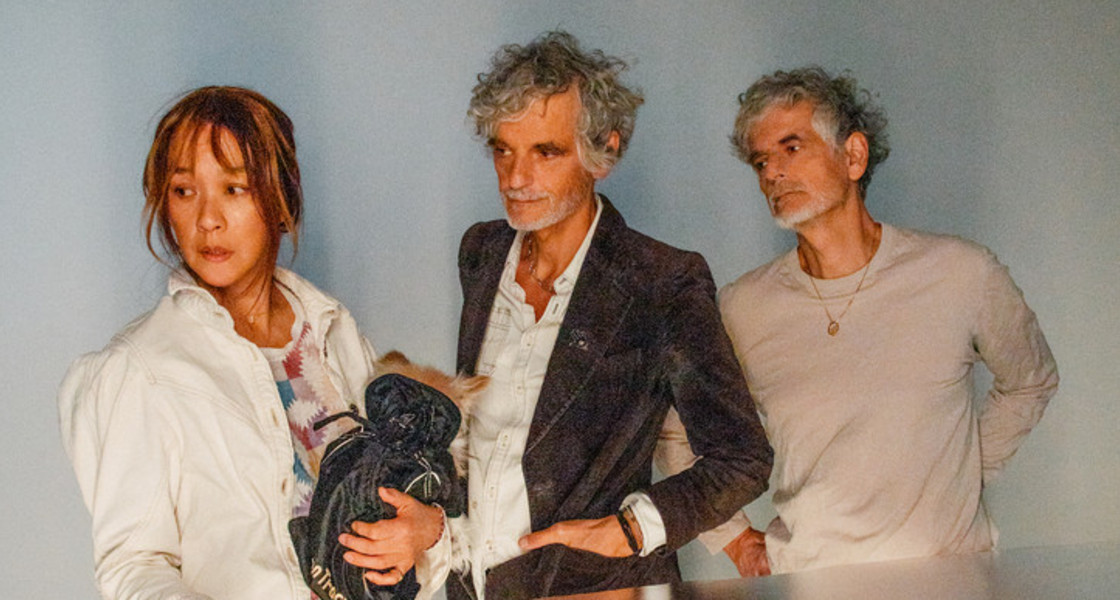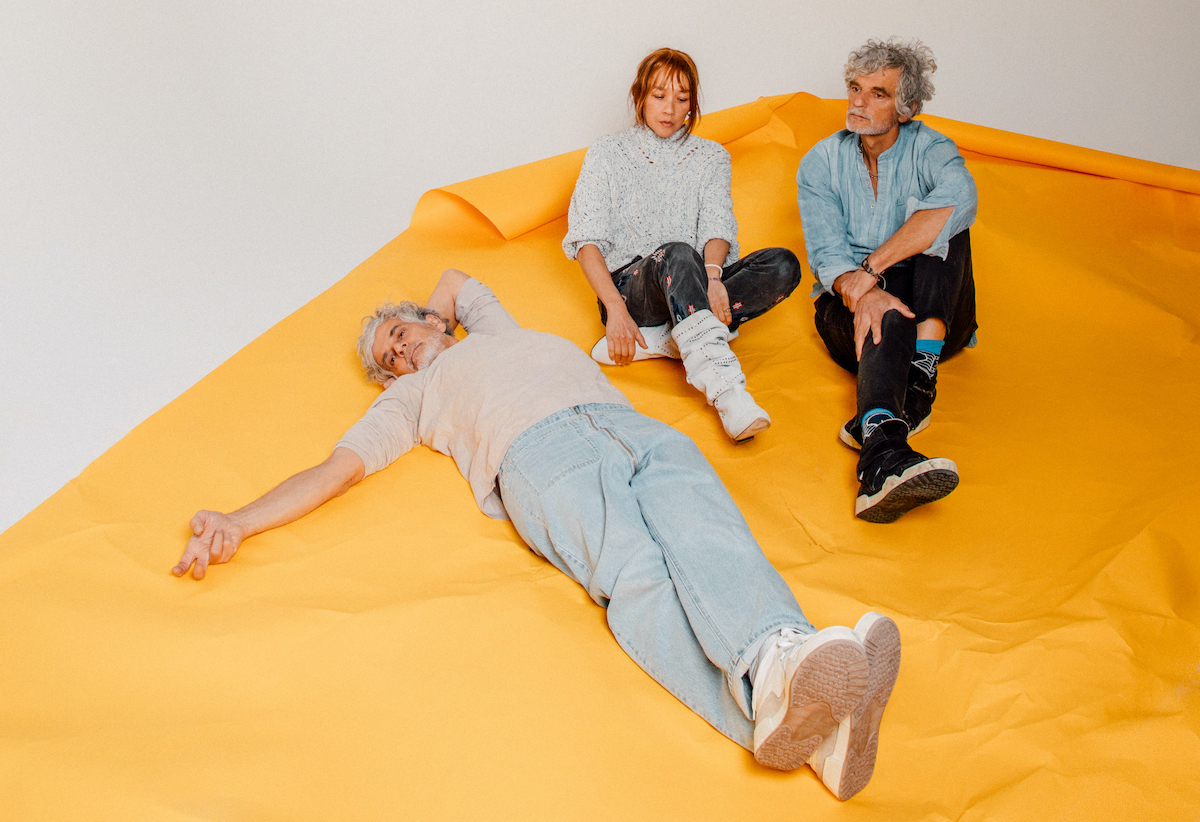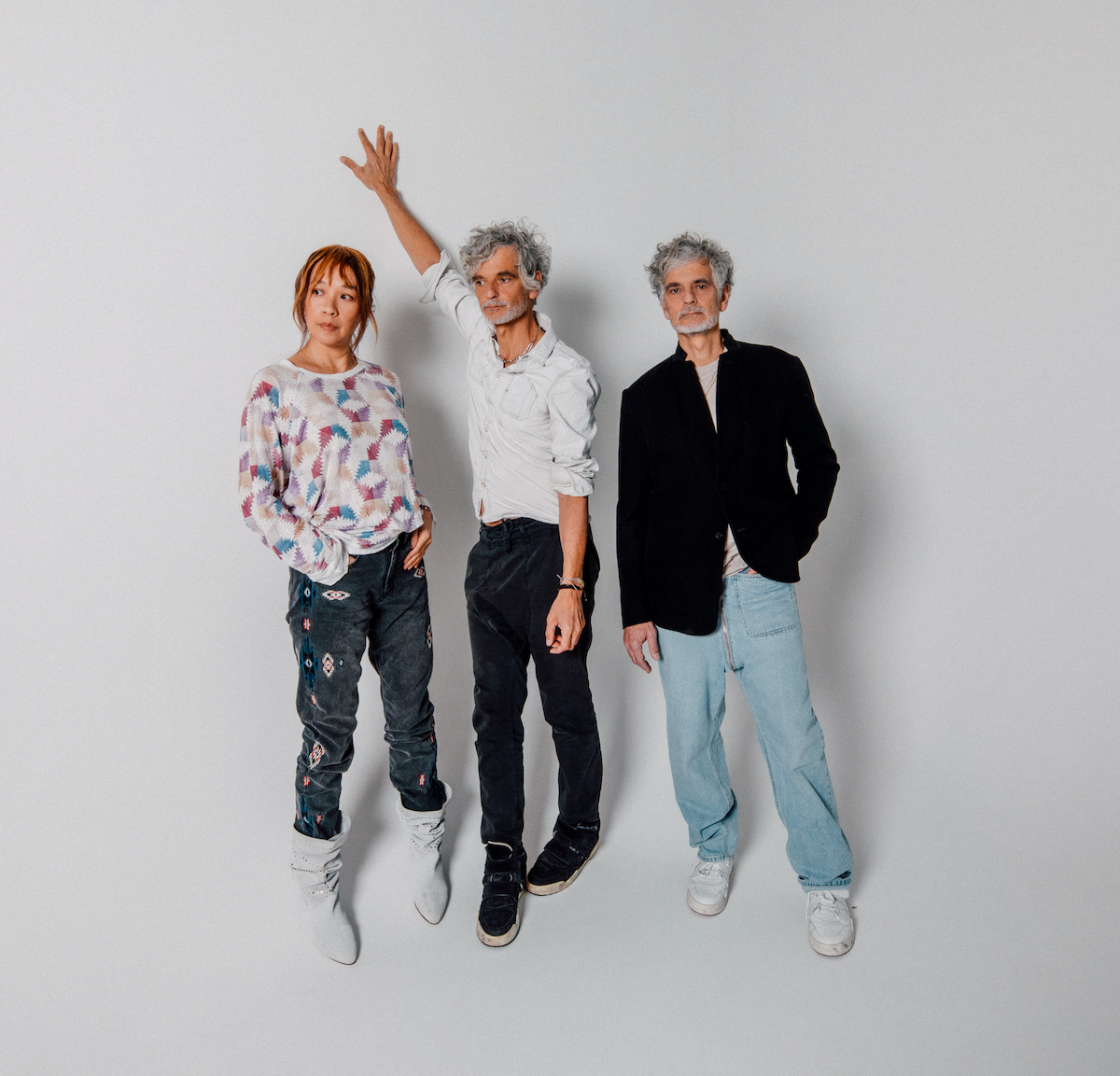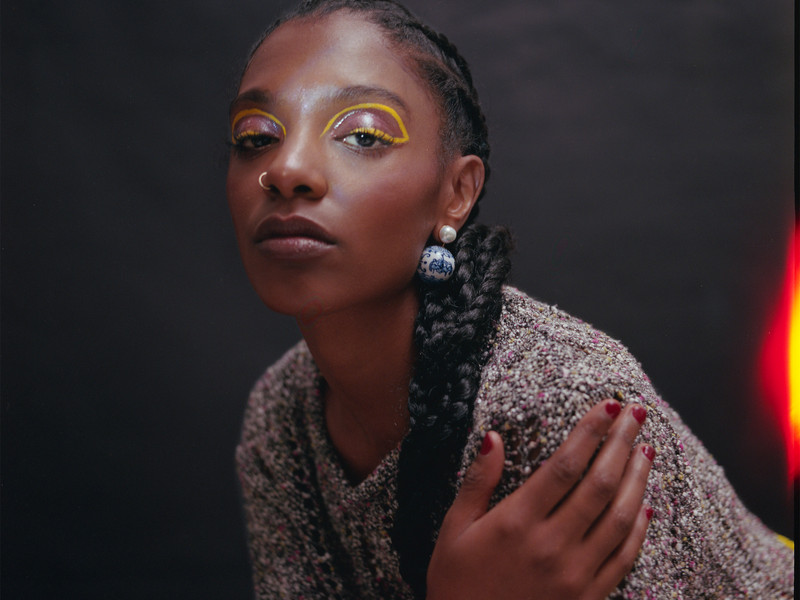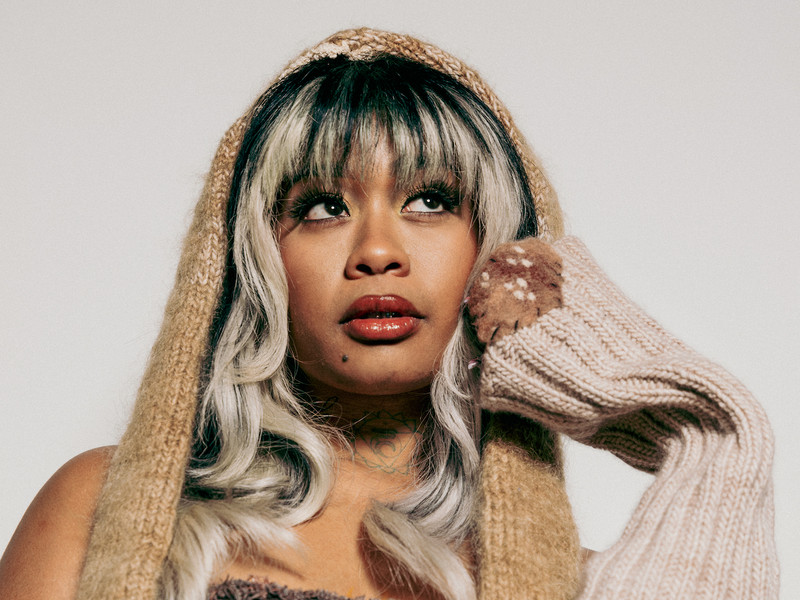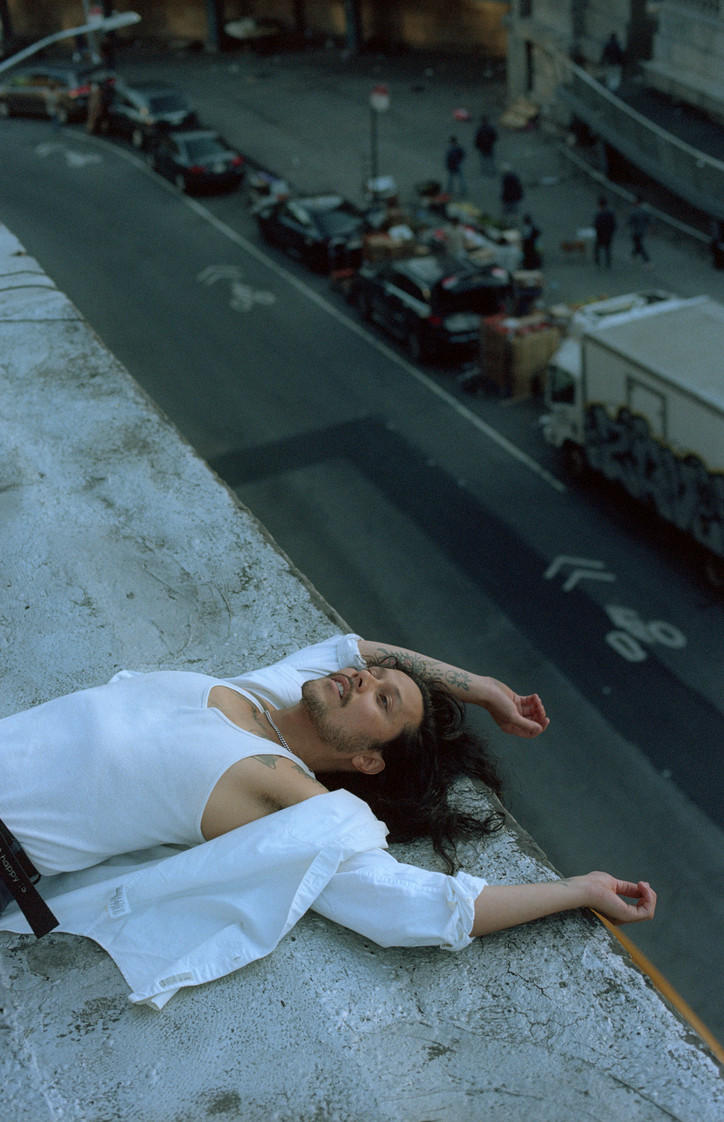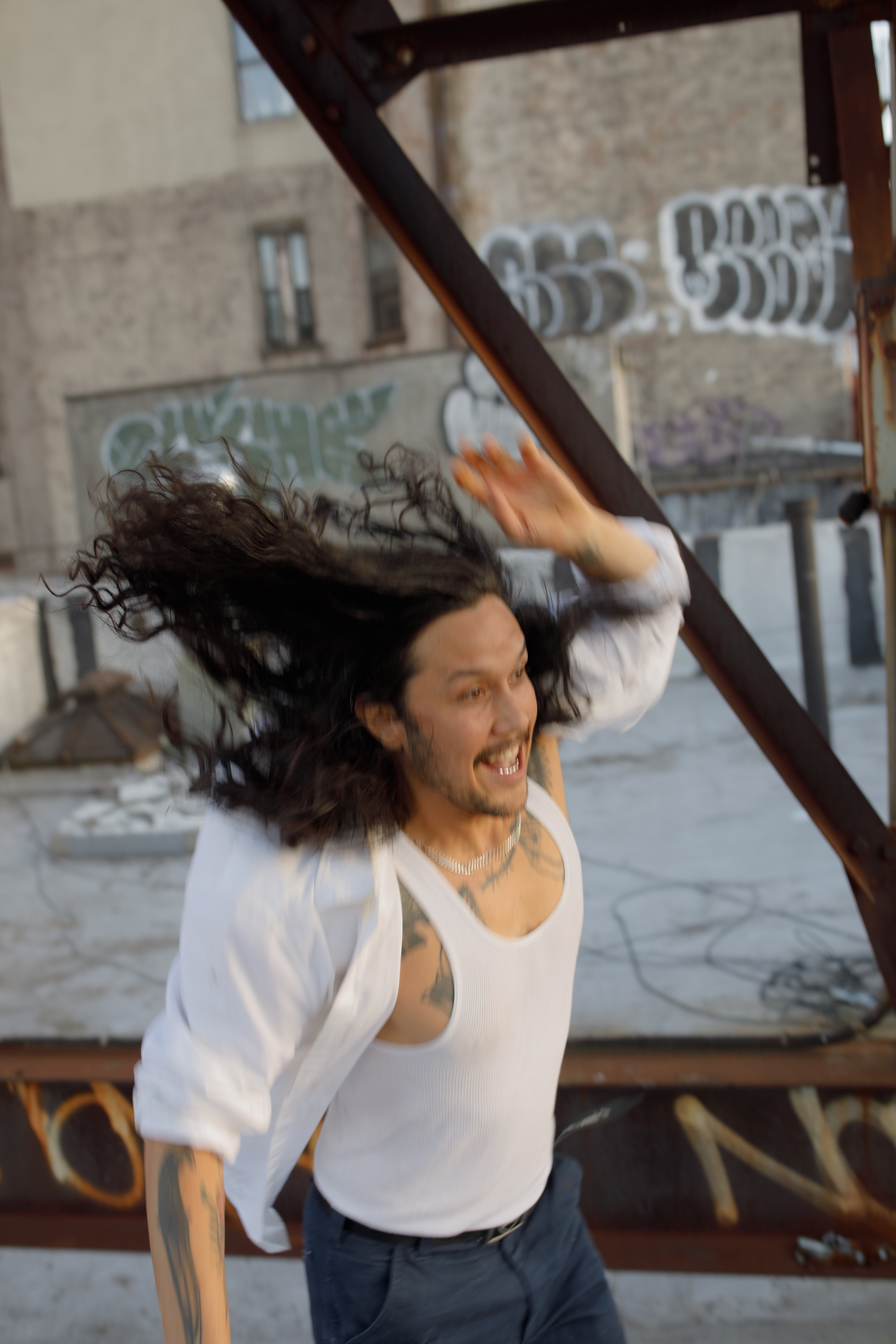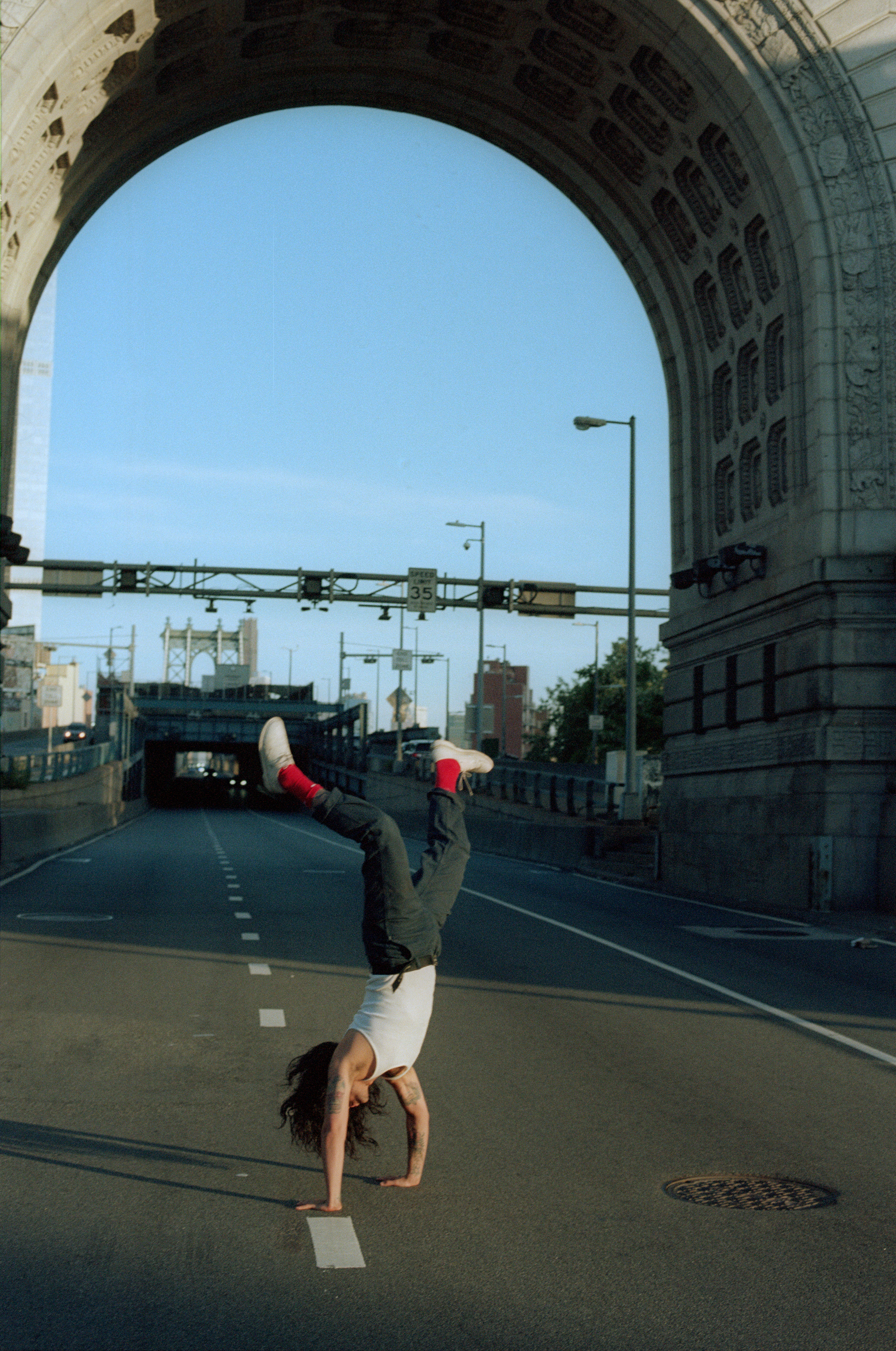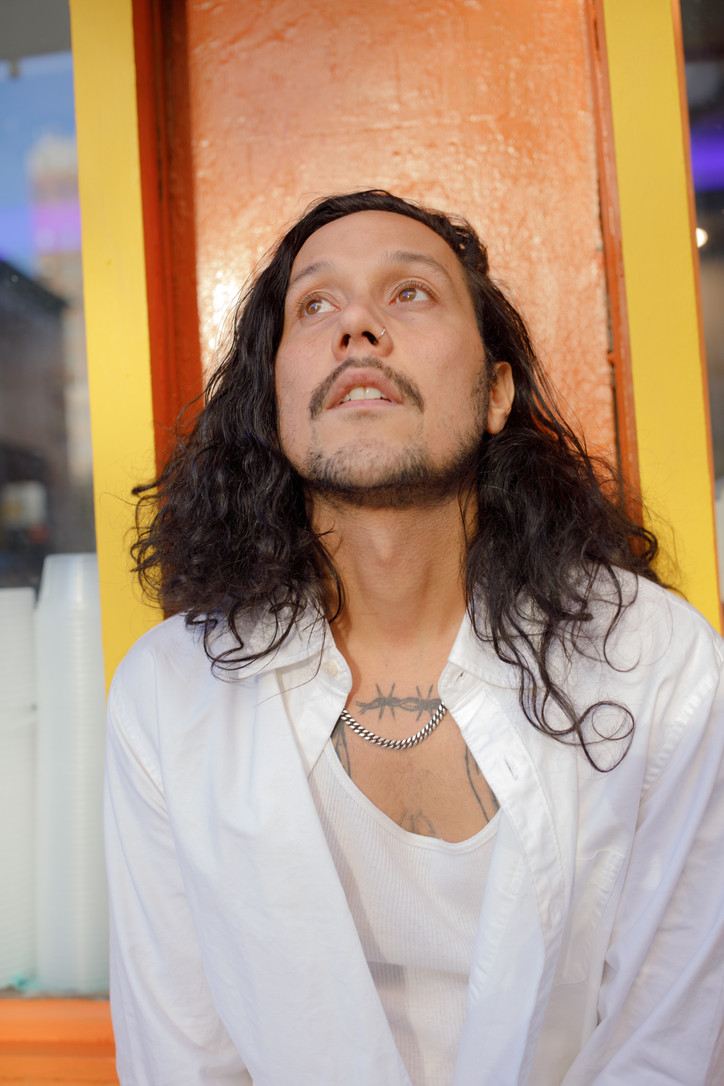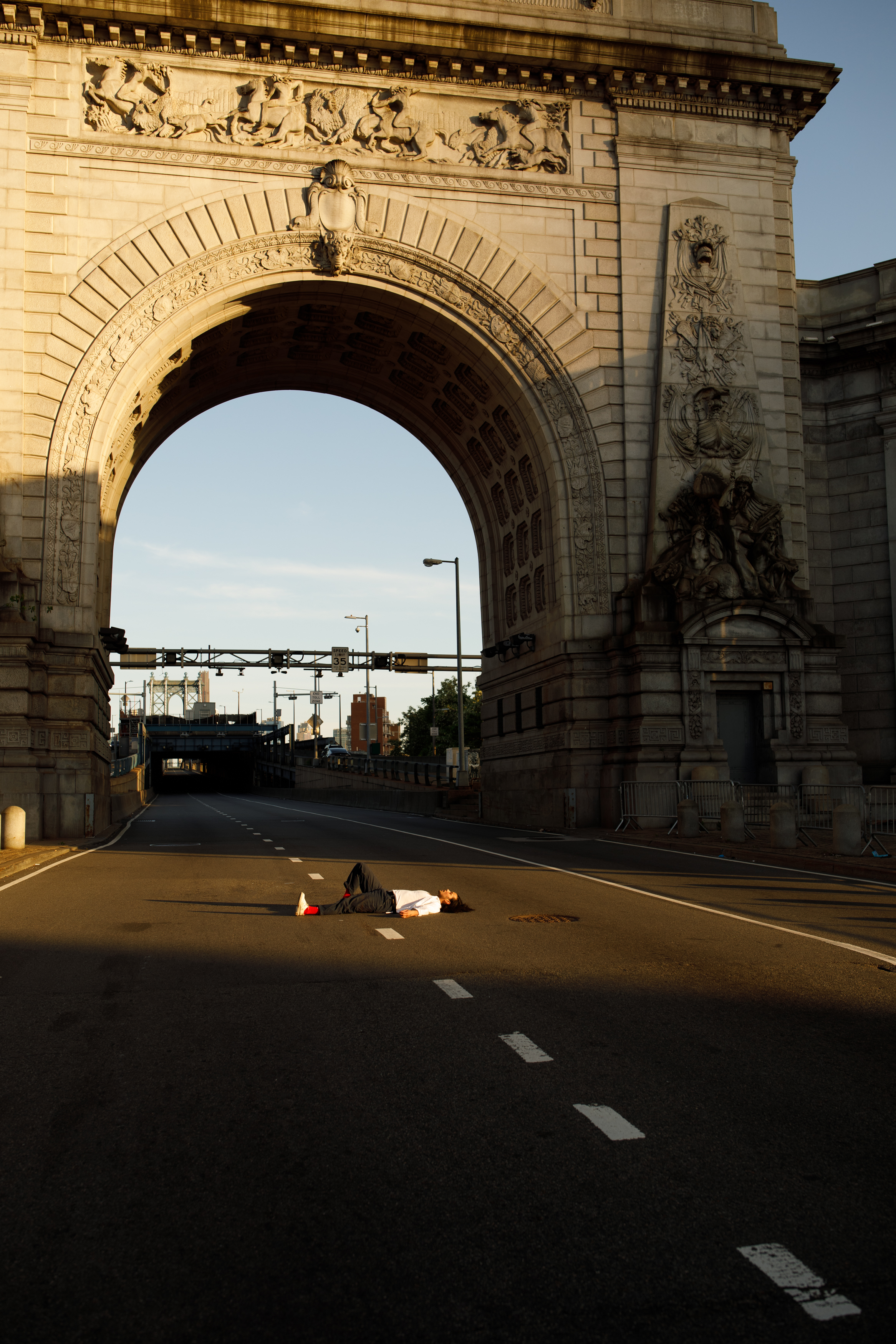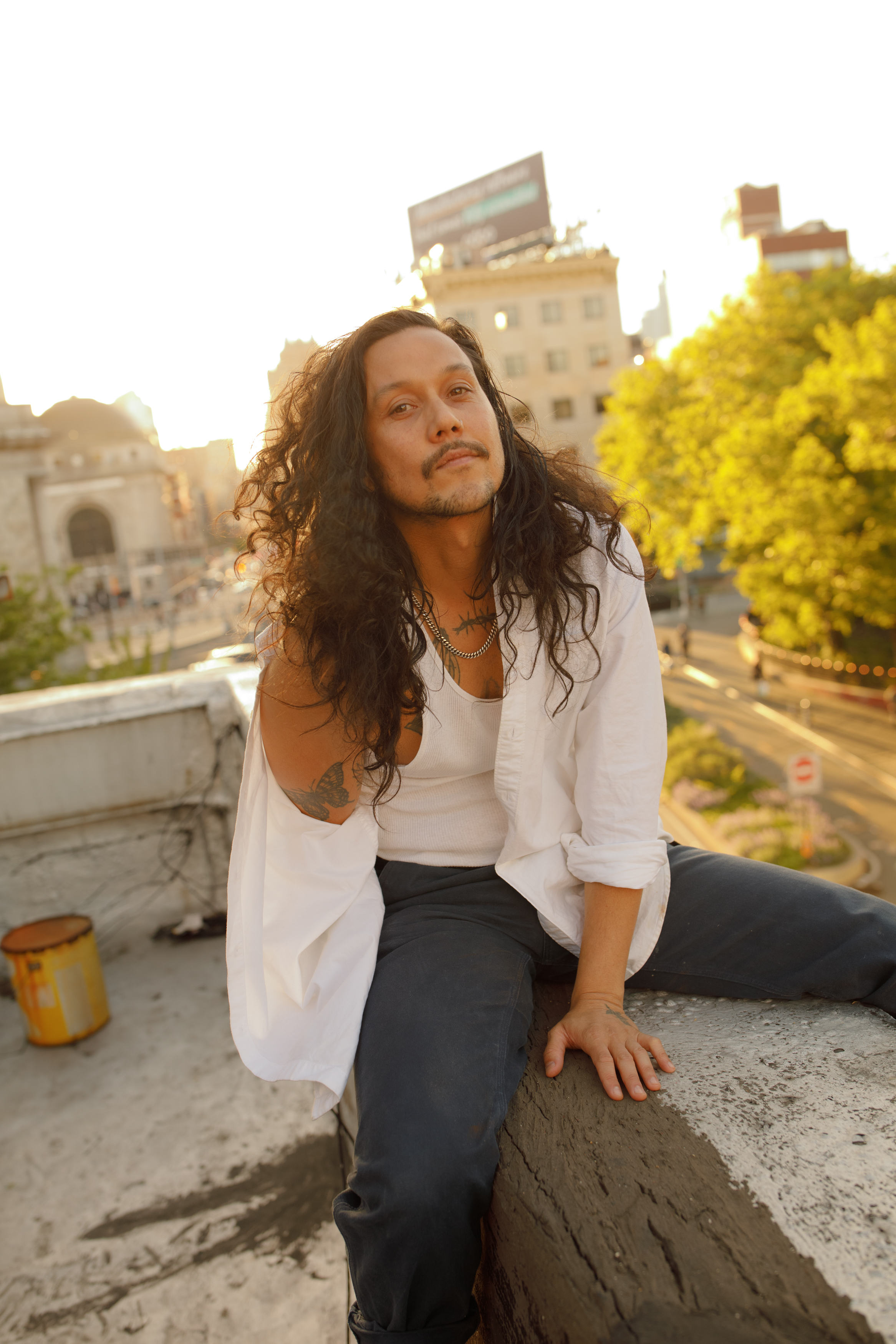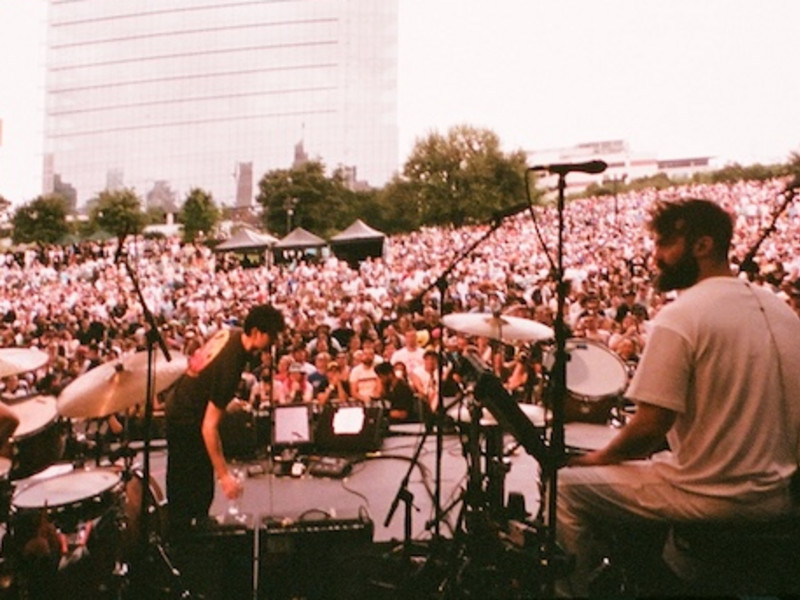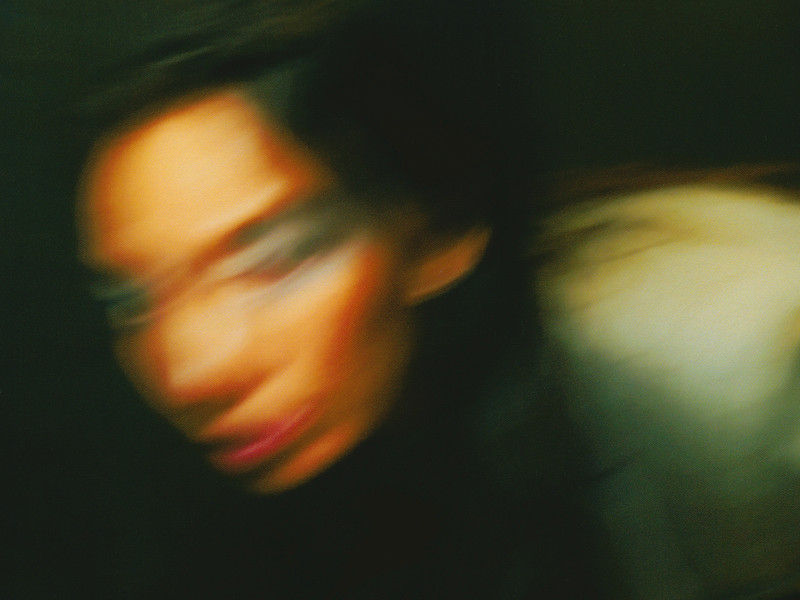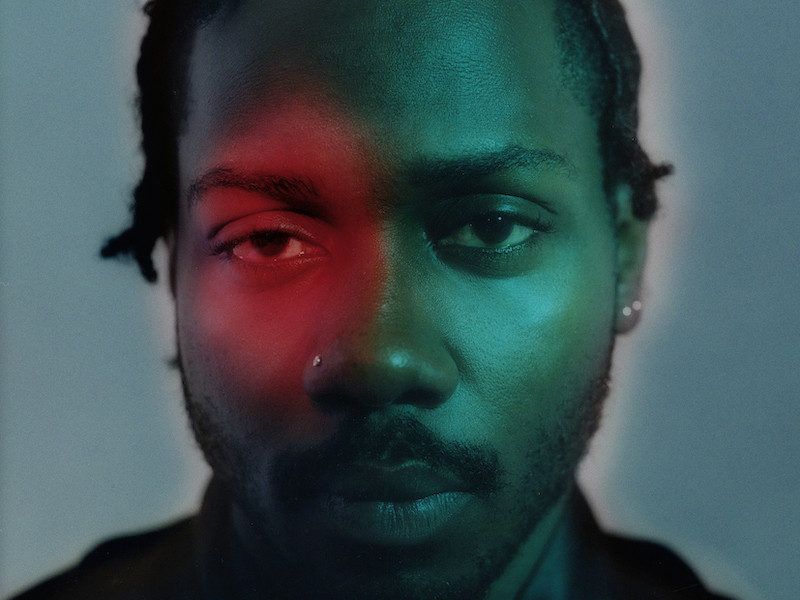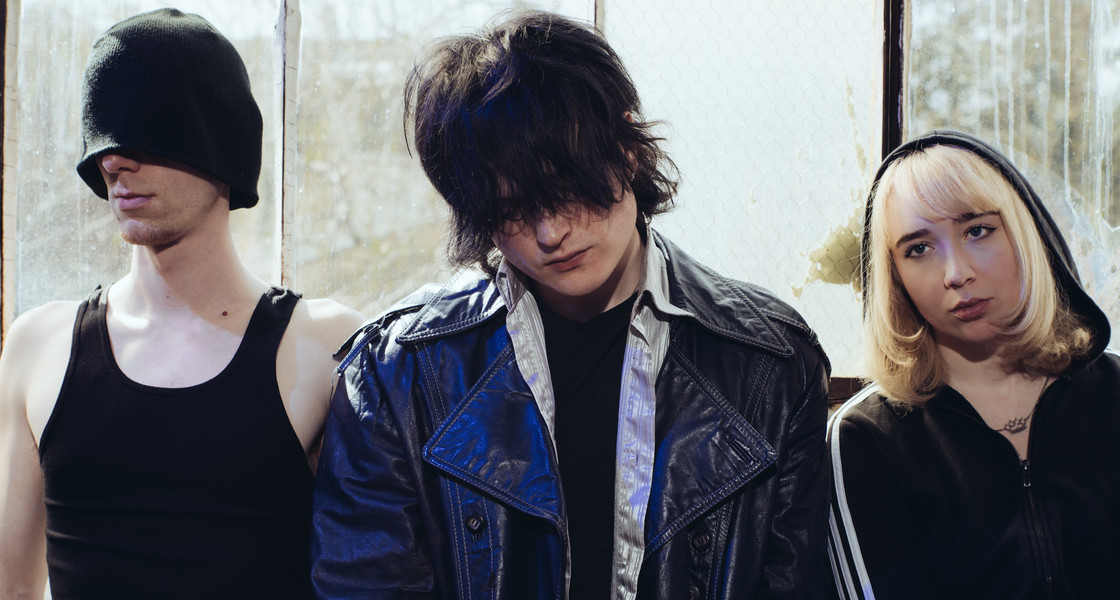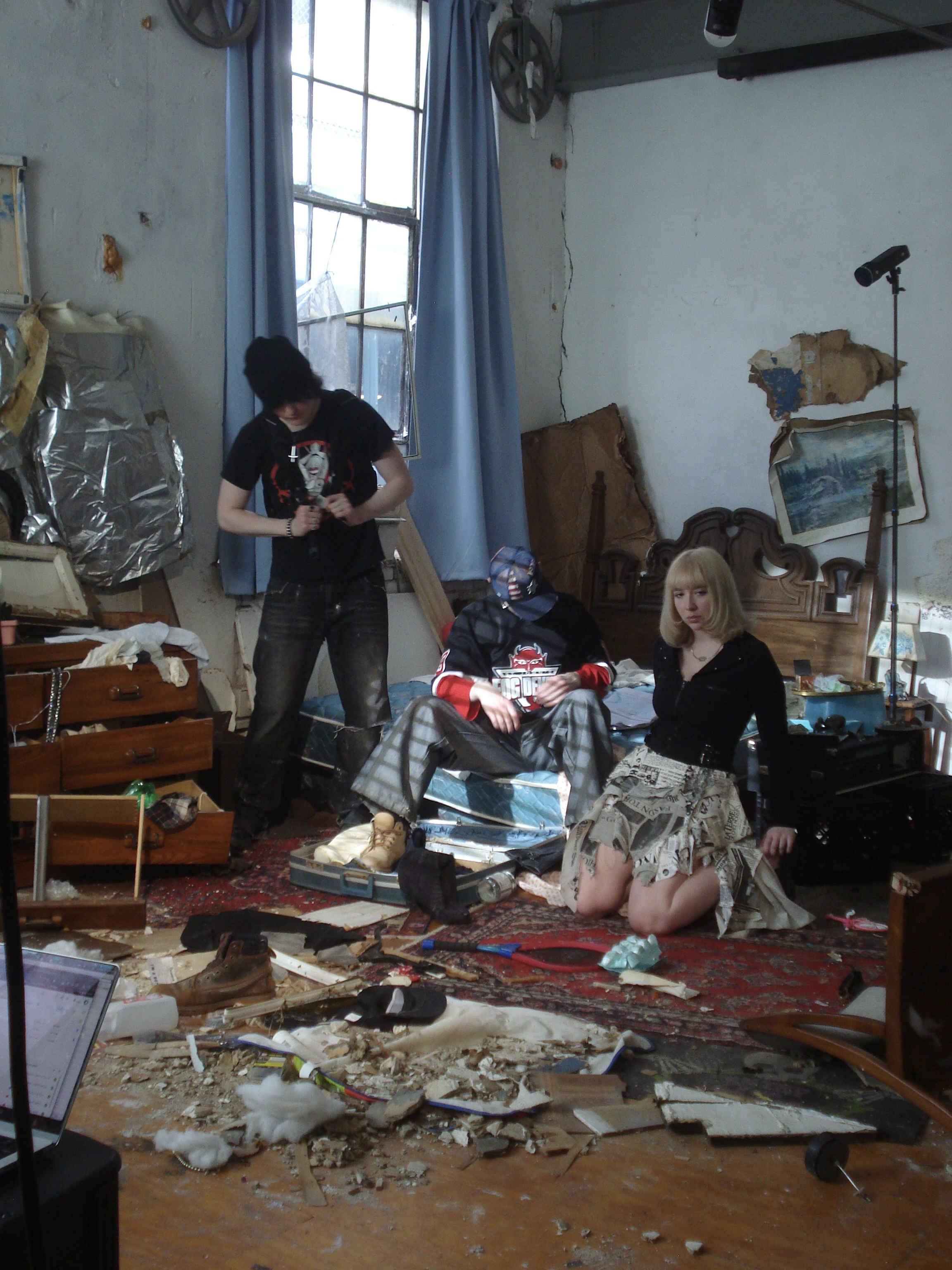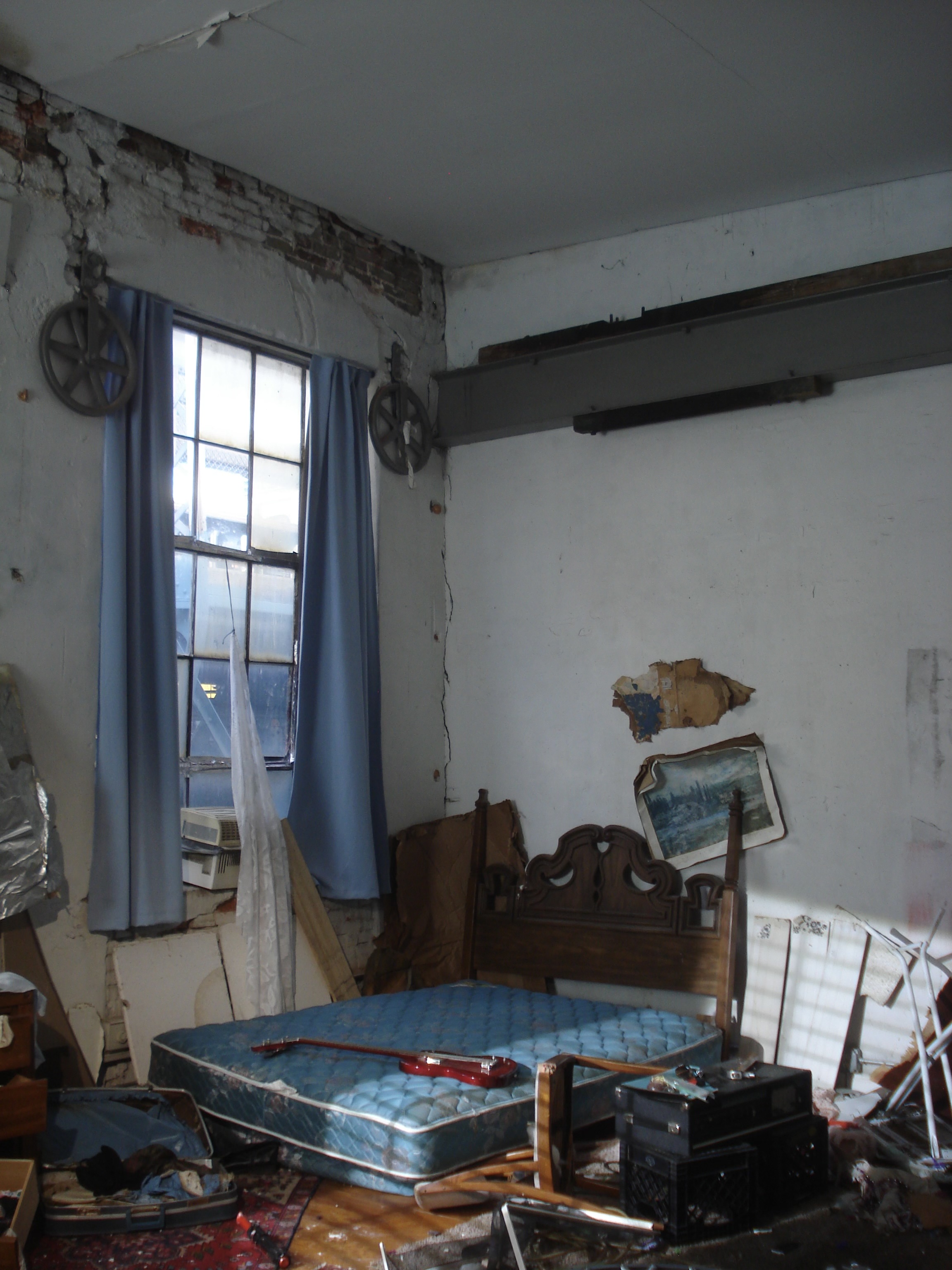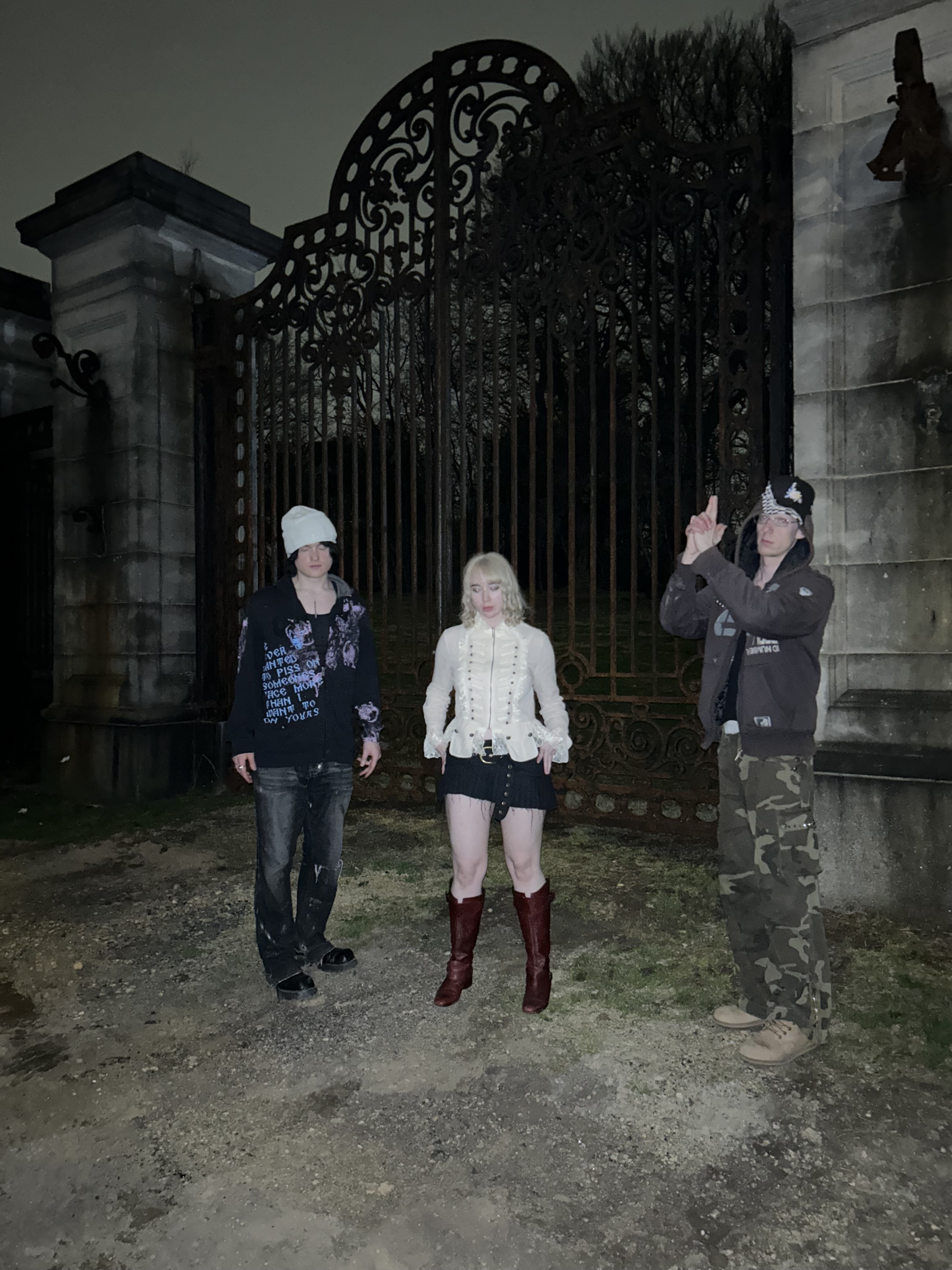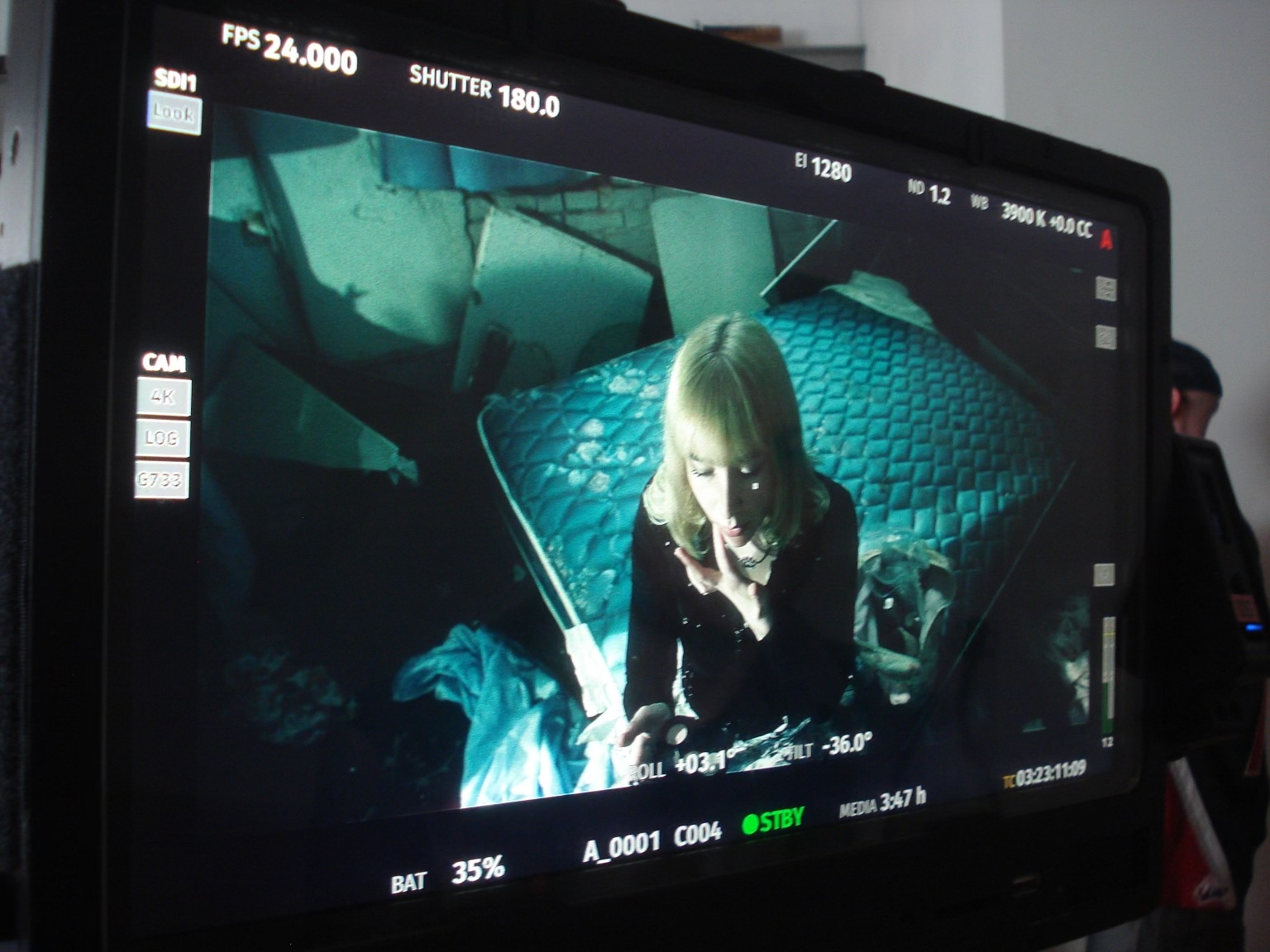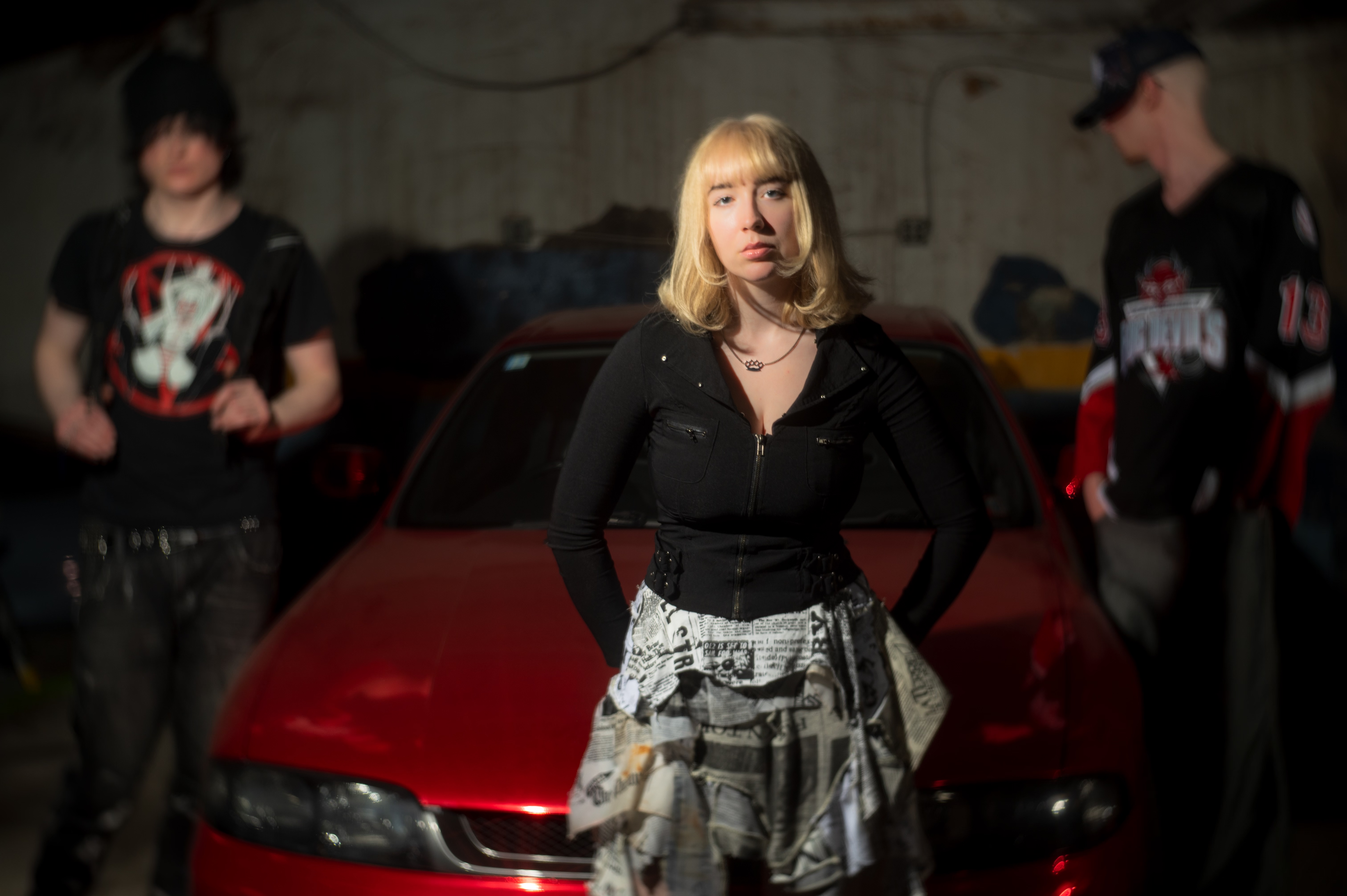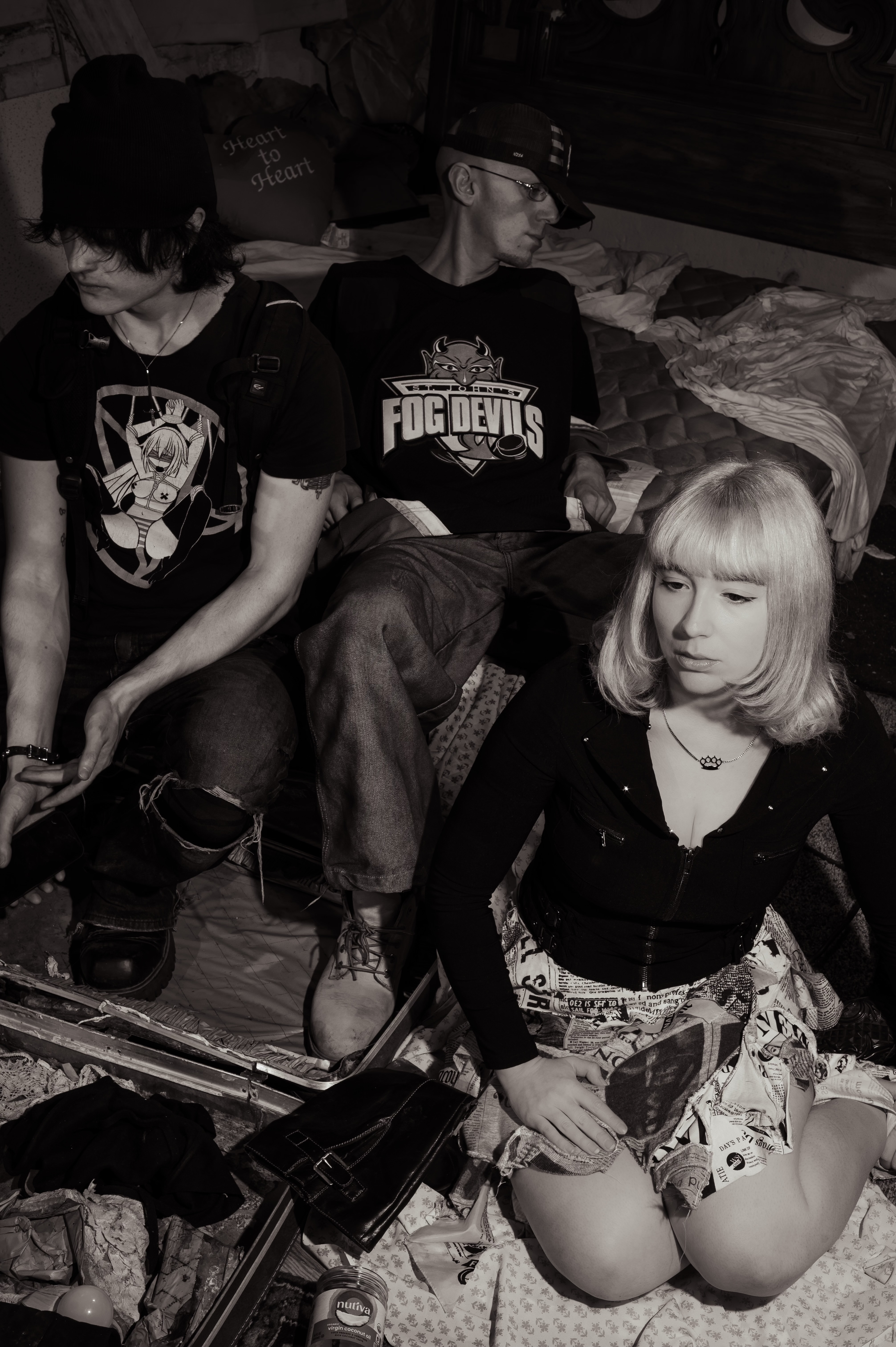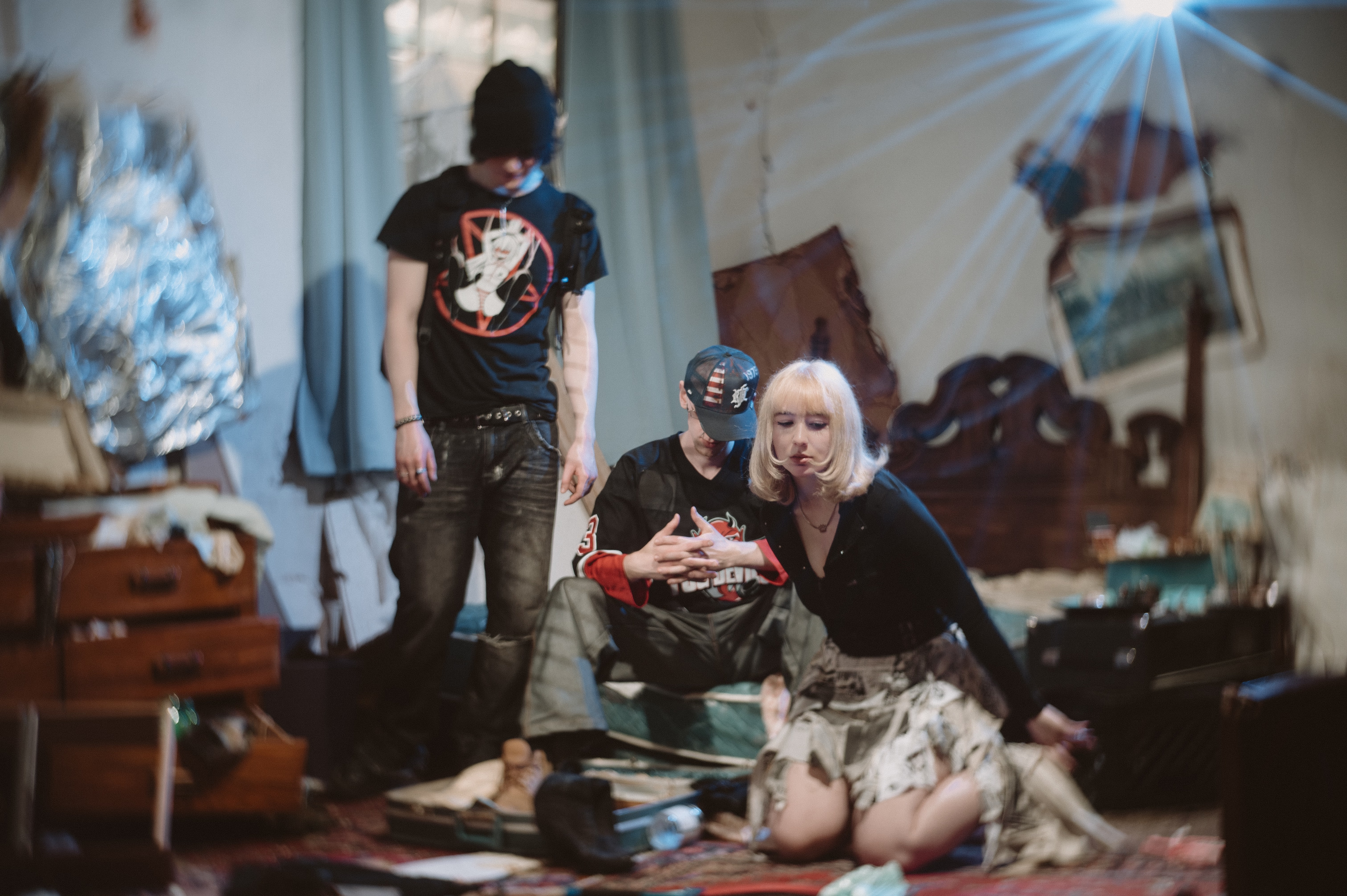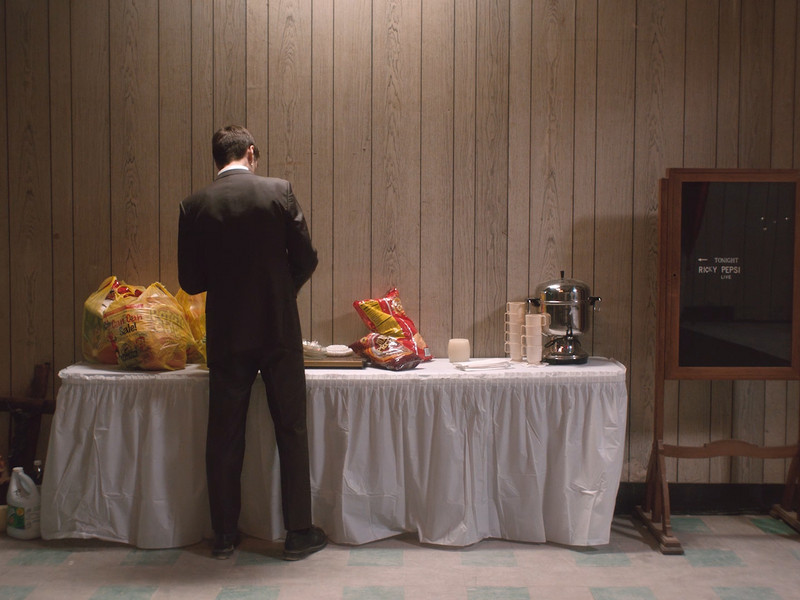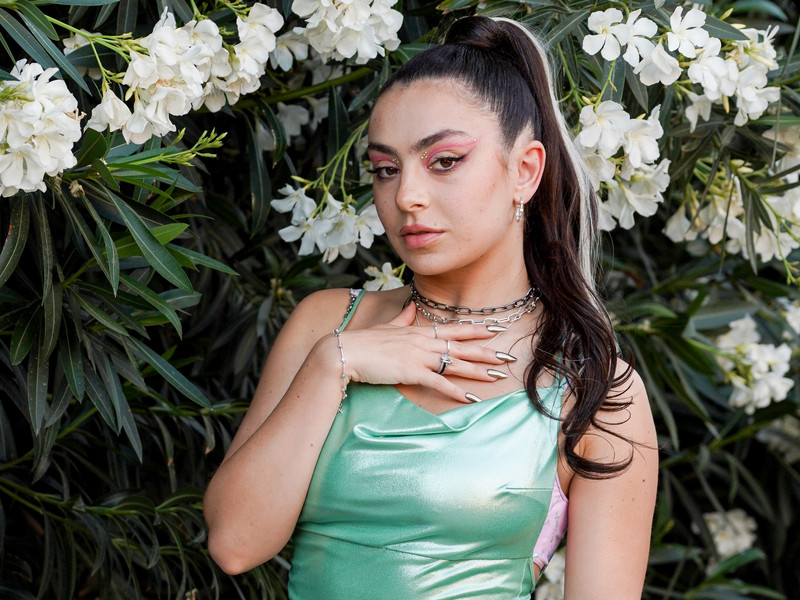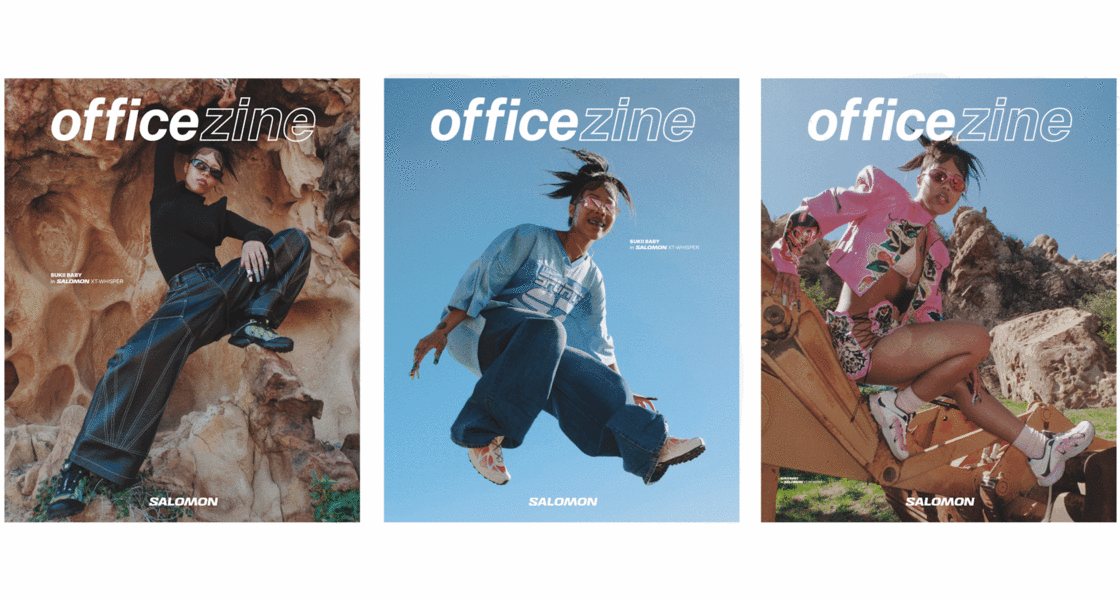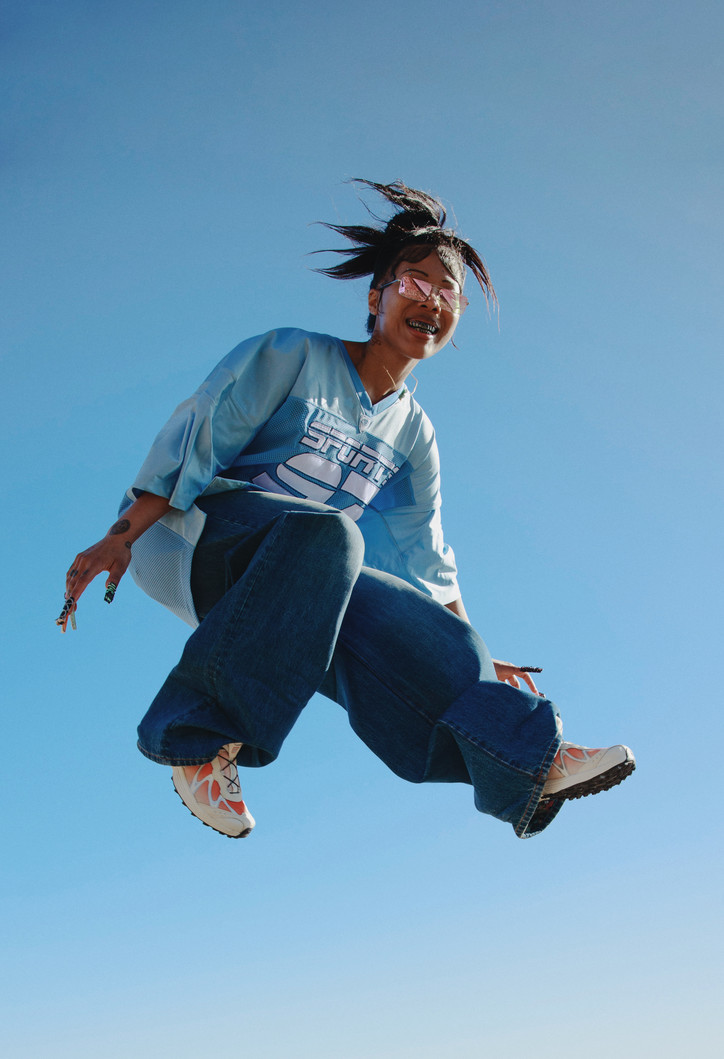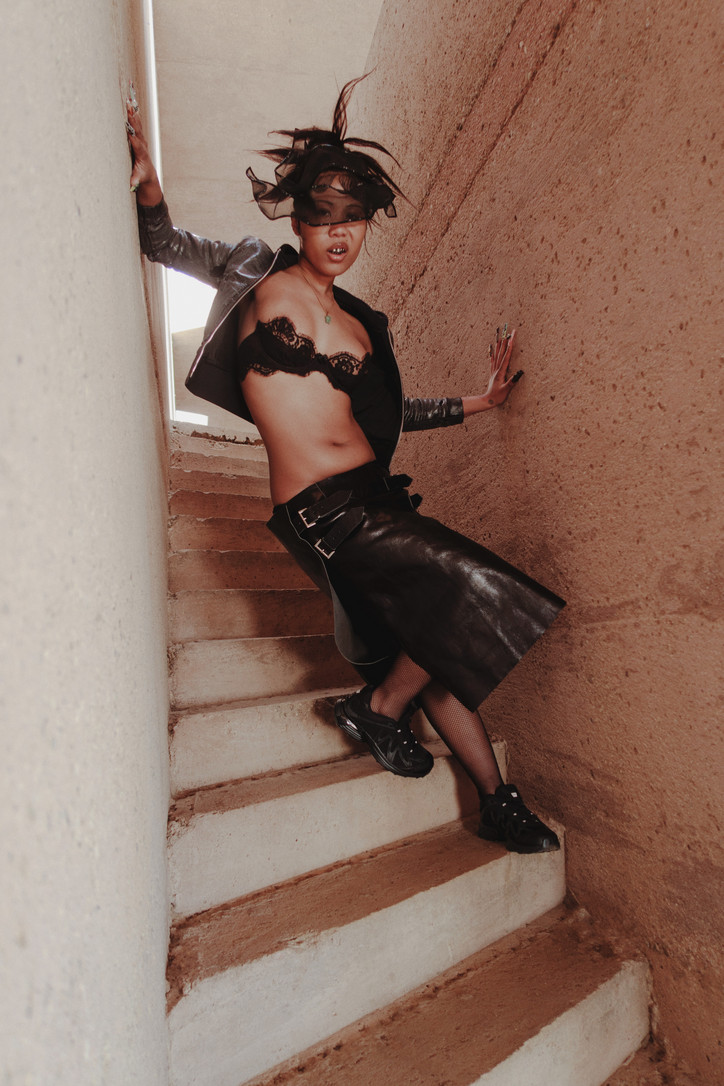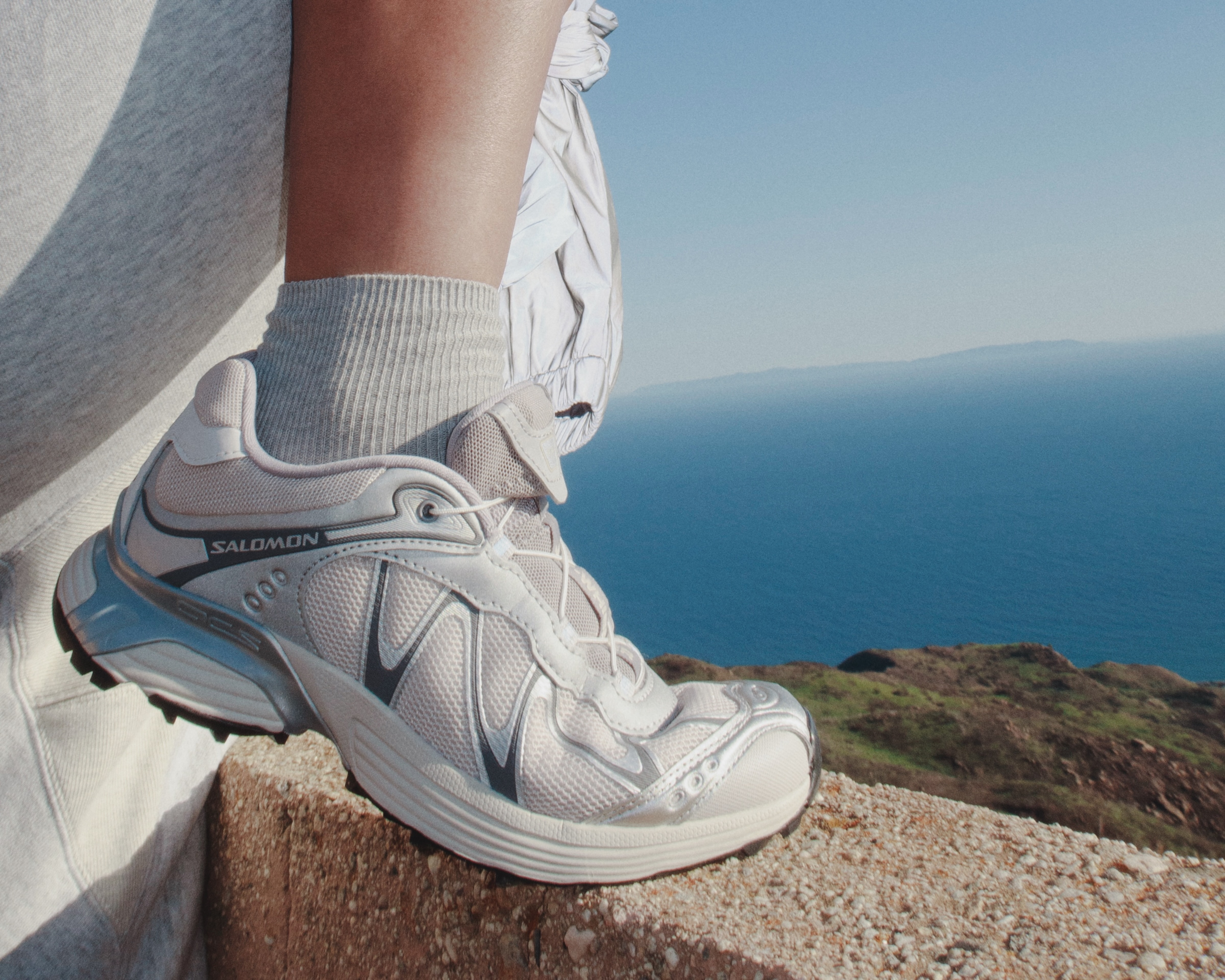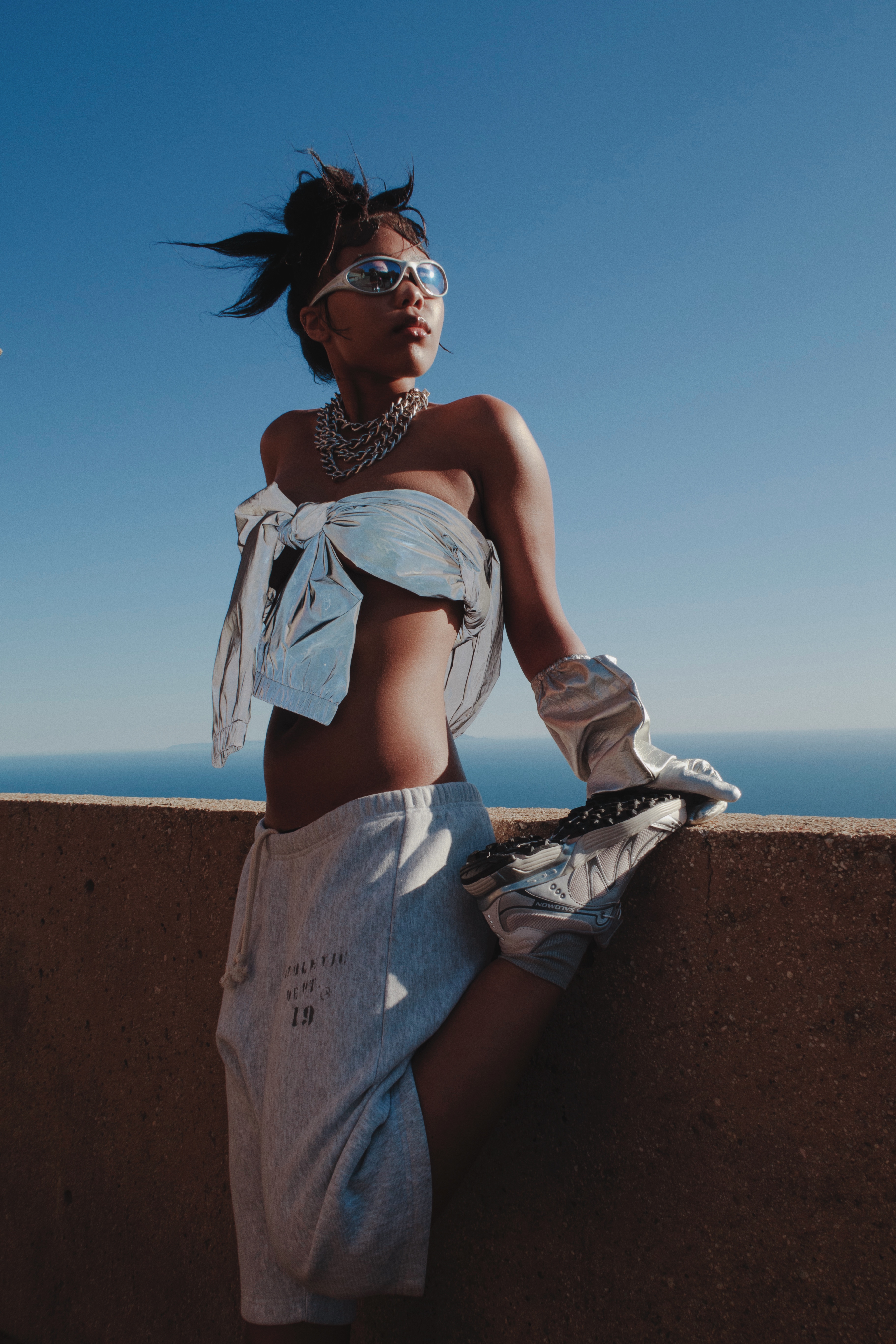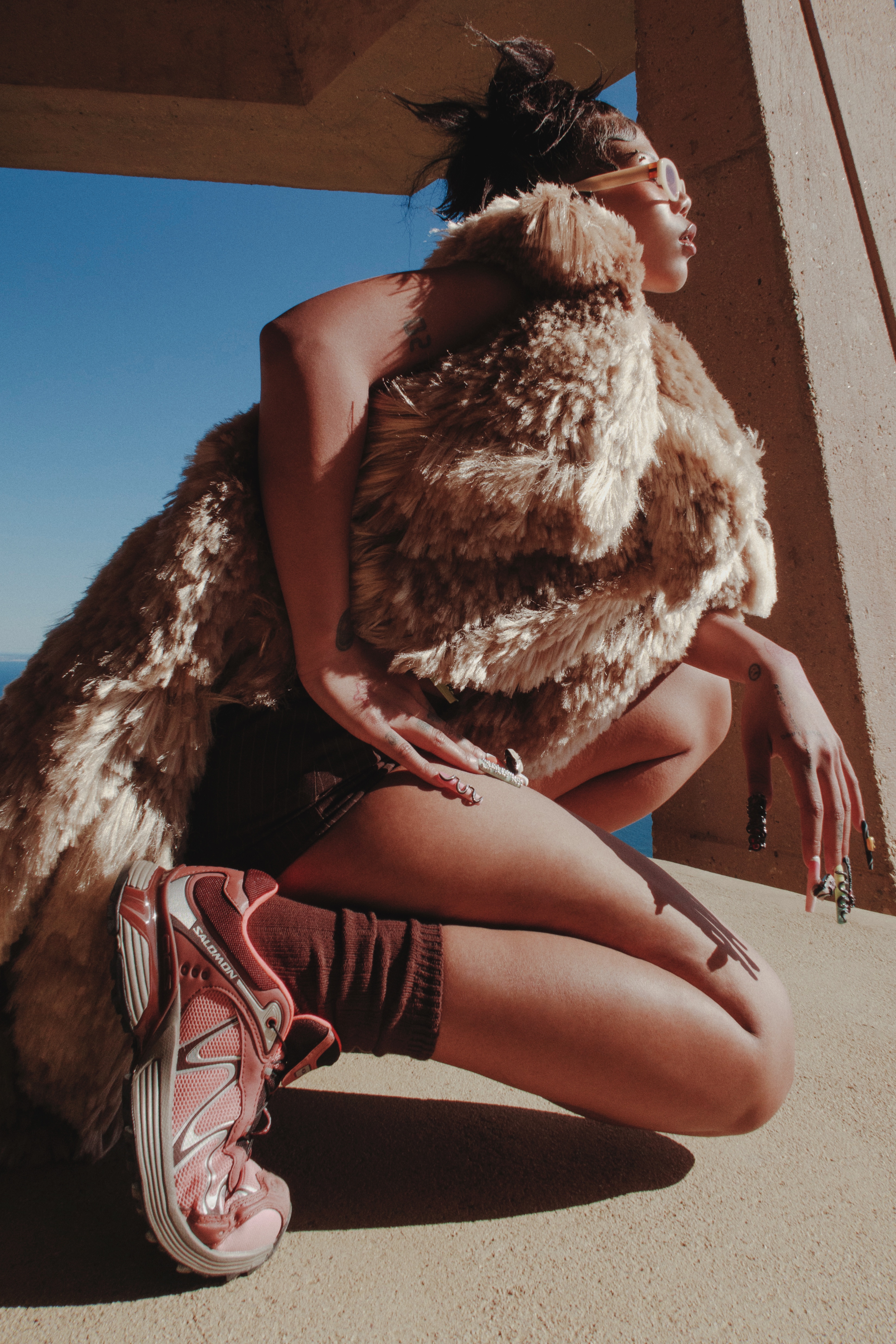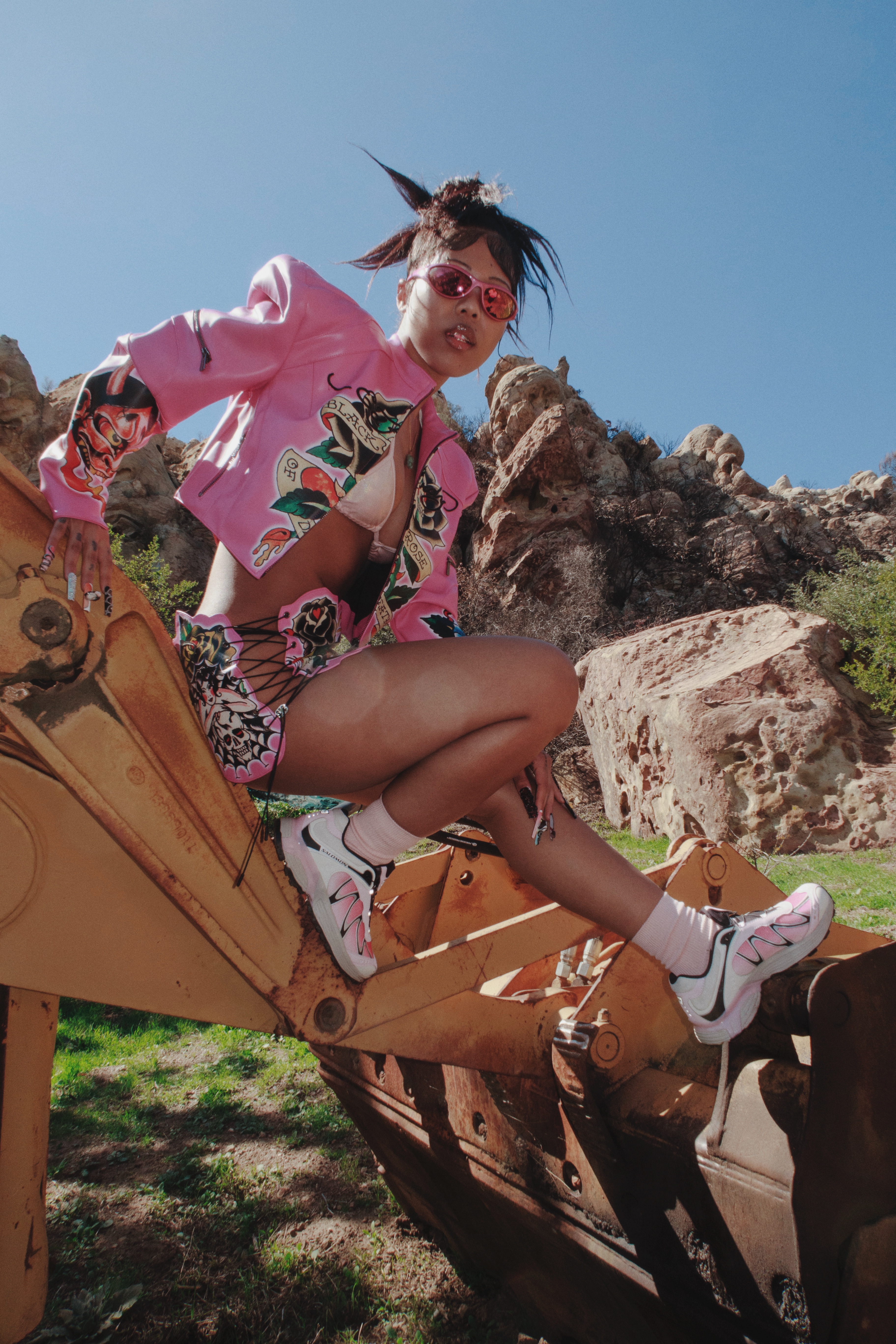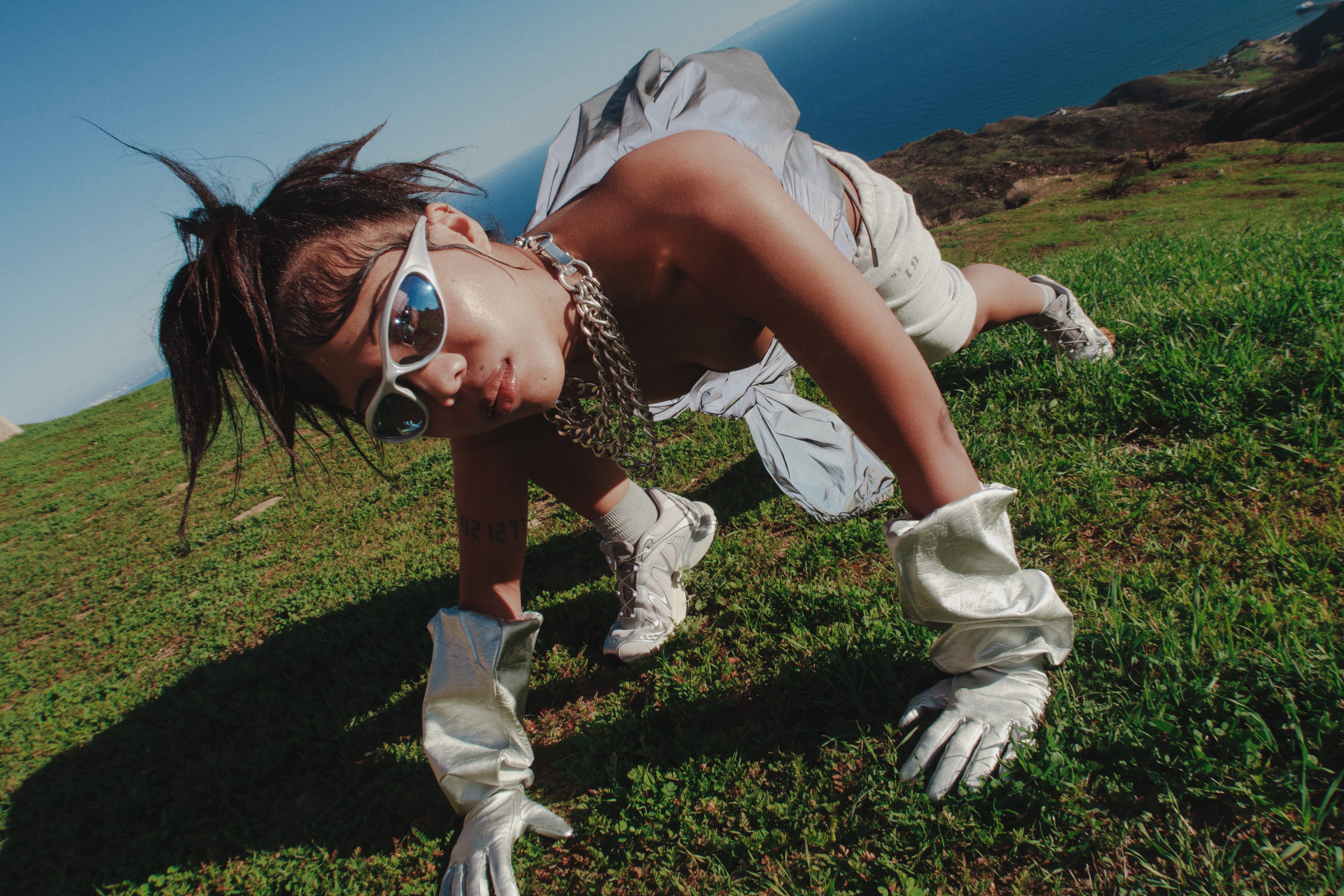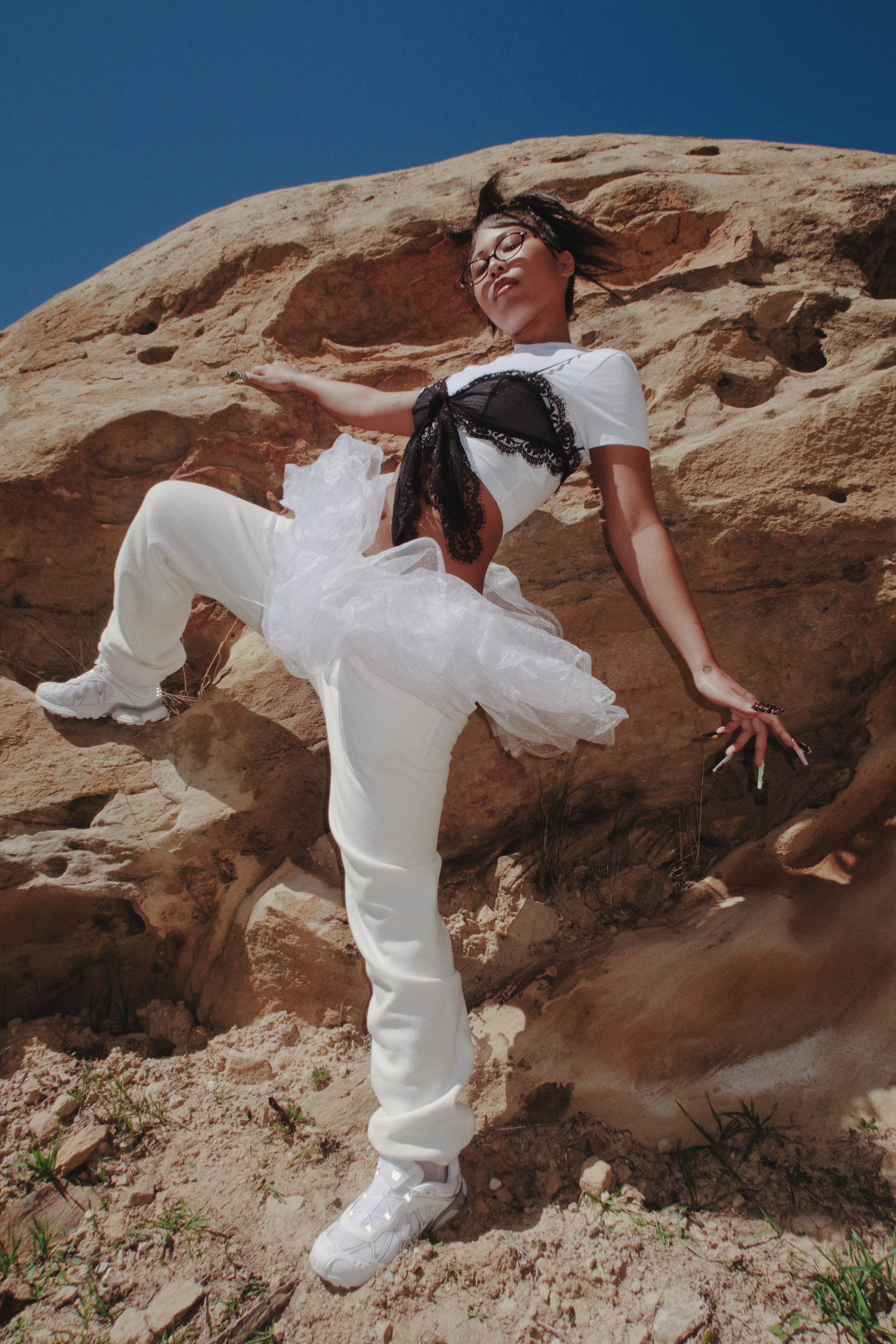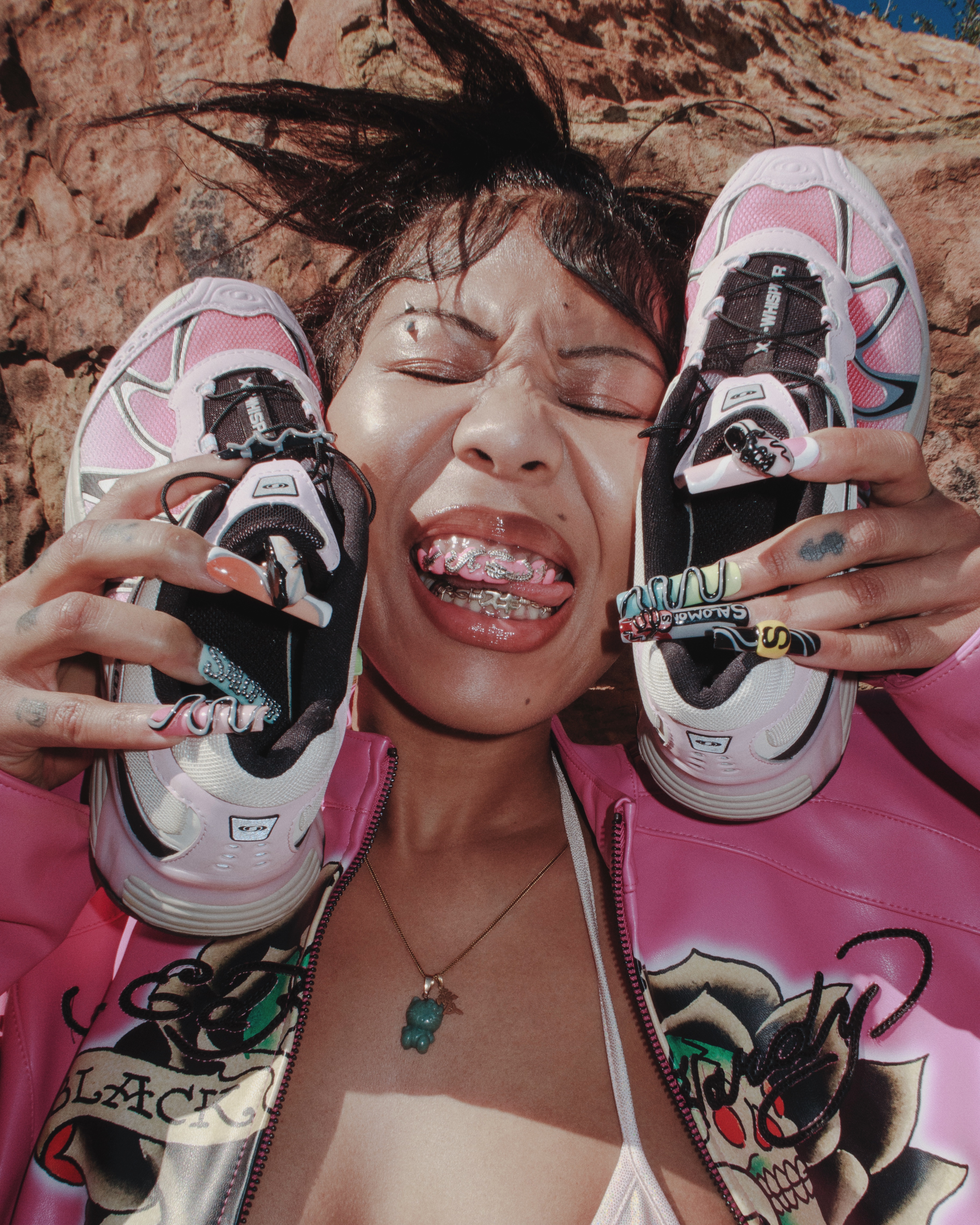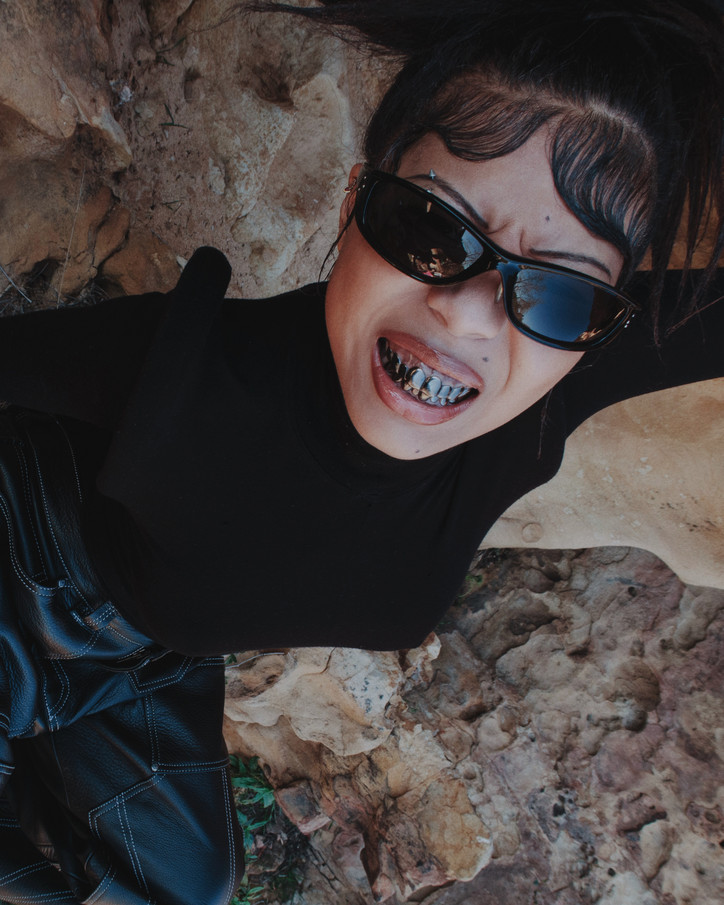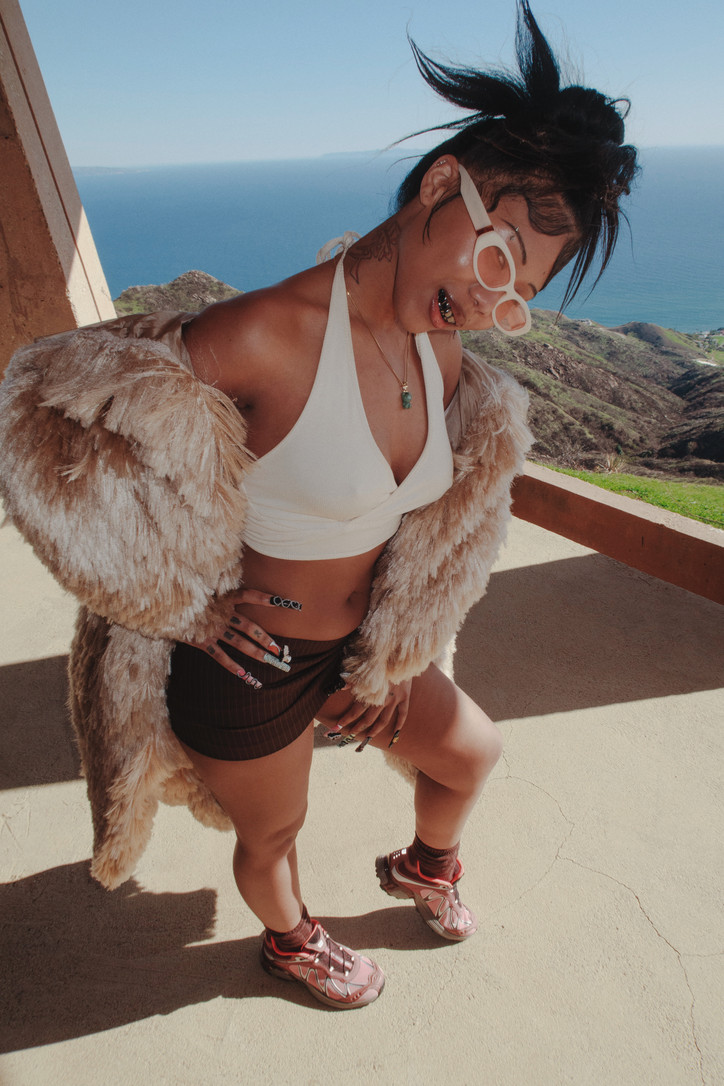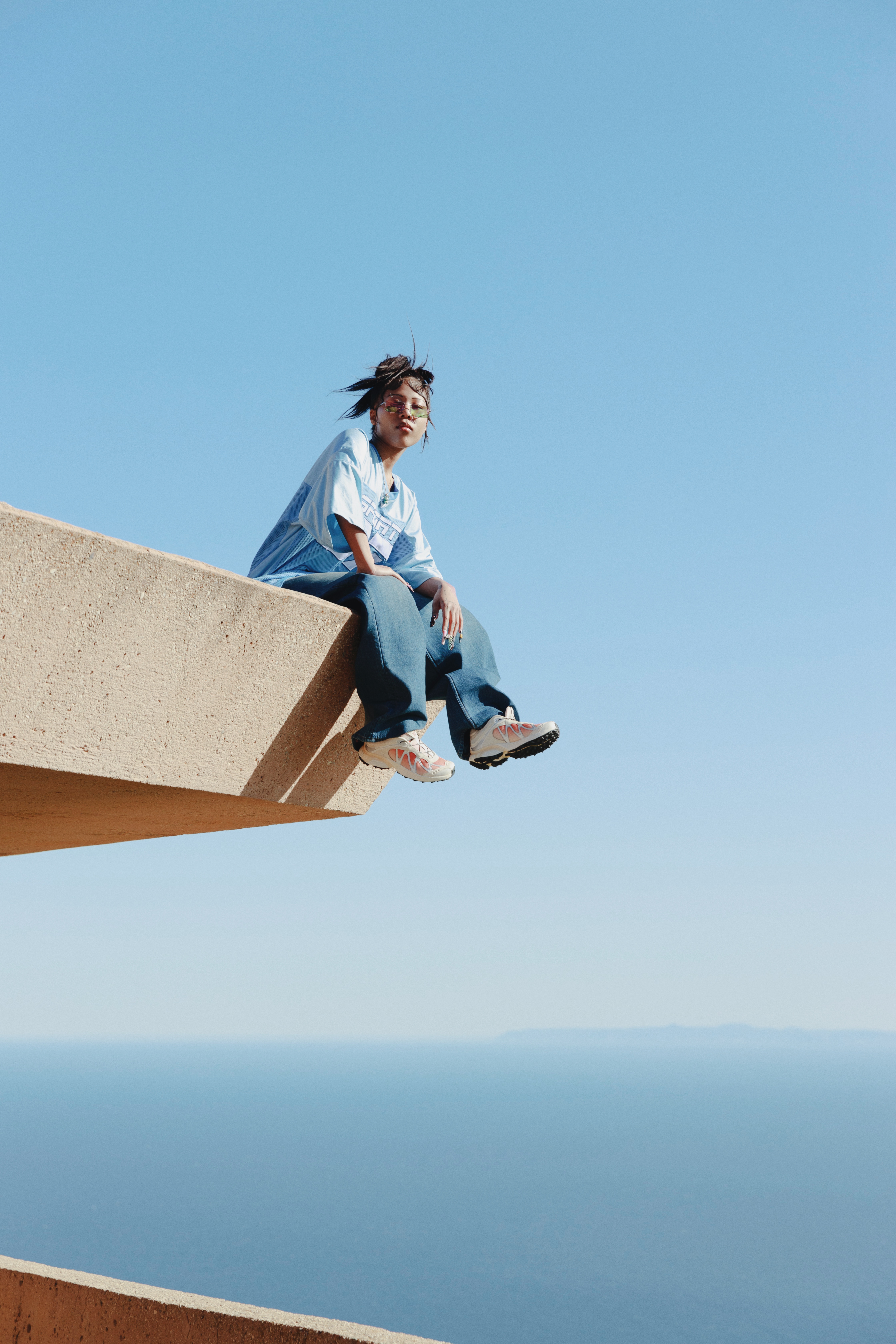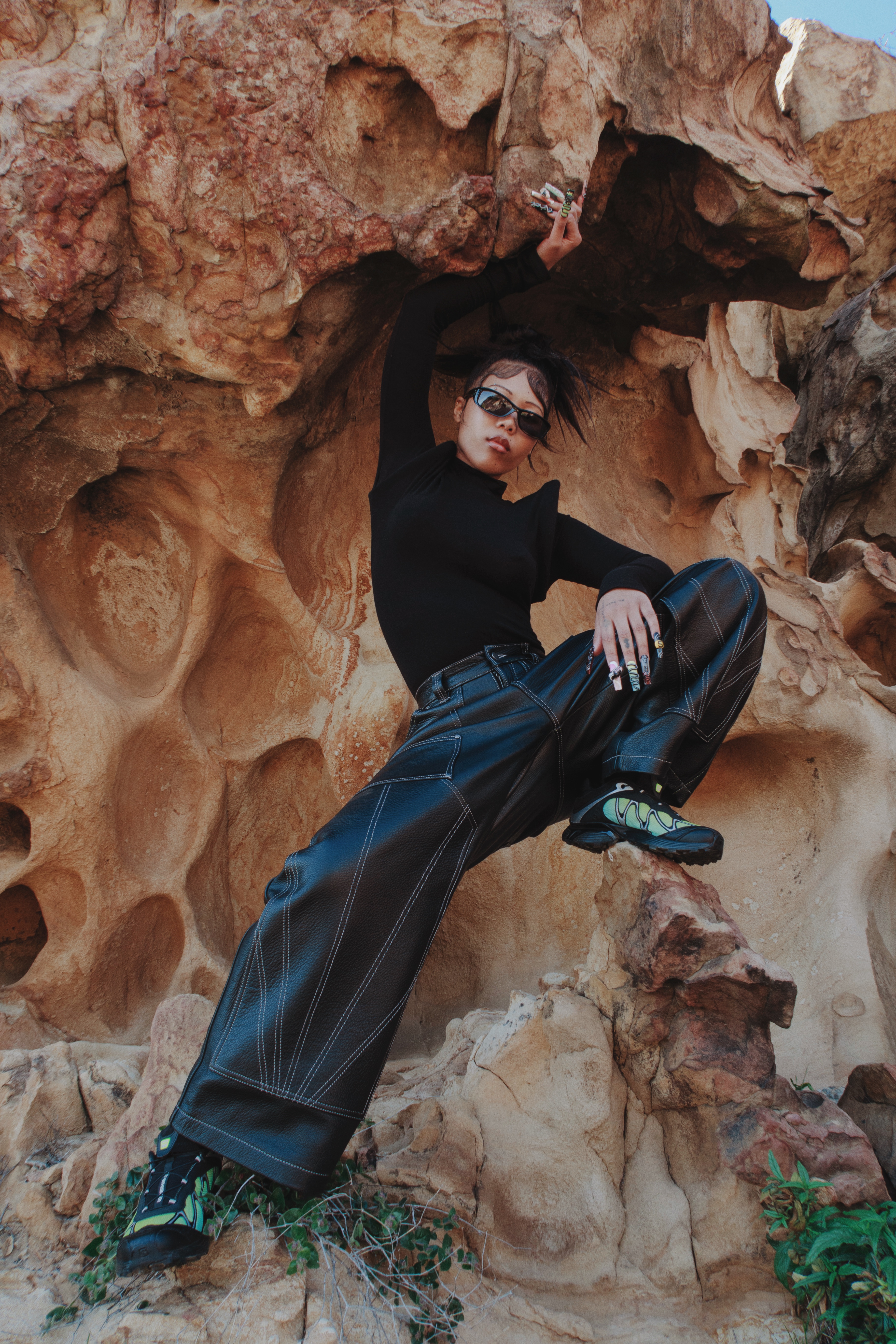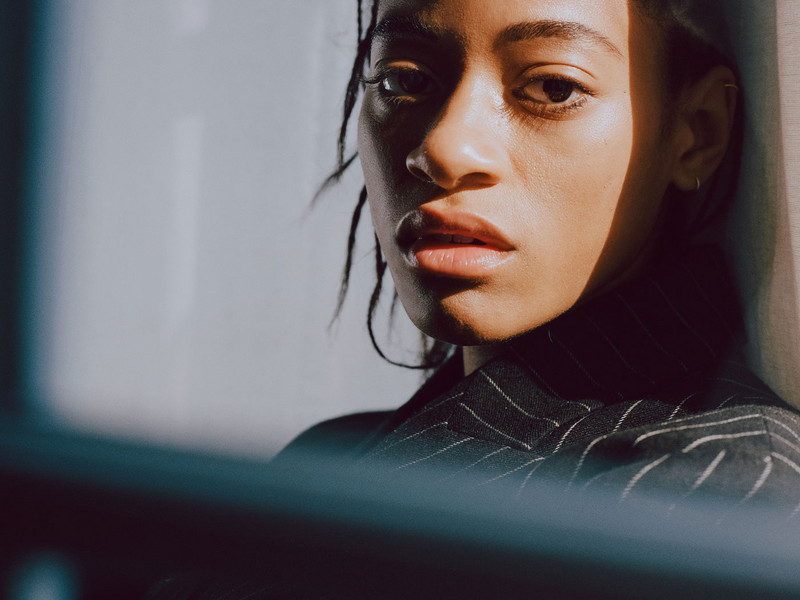Welcome Home, Blonde Redhead
Kazu Makino– It's been a hectic morning.
office– Yeah, what's been going on?
KM– Well, just a lot of things that need to get done. Also, my dog has an upset stomach. She's 18 years old and quite picky with her food. I’m trying to give her what she wants to eat rather than what she should be eating.
I have two older dogs. If you take their dry kibble and mix in like peas and carrots and a little bit of chicken, they really like it. But they're not 18. That's crazy. Your dog is almost as old as me.
KM– That's… wow. She is me. She's really unbelievable, but still quite opinionated and stubborn. You know this, it’s not the spirit that dies down, it’s the body. Your spirit doesn’t get old, she’s my living proof of that.
Anyways, pet care aside. how did you guys all meet?
KM– People knew me as a musician so they brought me over from Japan. They were putting me through this testing period, letting me play and do my thing. But people knew me, and I had plenty of gig offers. So I was trying to find a band, instead of just always playing with different people. A mutual friend told me that he knew the right people, so I met Amedeo and Simone and that’s how we started.
Initially, it was just me and Amedeo playing together but really quickly we started playing shows and that’s when Simone joined. It’s funny. Amedeo was like, “I know this really good drummer, it just happens to be my brother. Do you want to give it a go?” And I’d never met twins before, so I smelled trouble. It was too unknown, and it felt like a bad idea, so I resisted for a while. But we started playing live shows immediately. We didn’t even have a name, it was a problem– we’d have a show but wouldn’t know how to advertise. So we just had to come up with a name. And I remember I was in a taxi and said, “What do American people like?” Because nobody knew us, and we just wanted people to come. I was like, “They like blonde people or red-haired people.” It was funny, because all of us have dark hair. I never thought it would last this long [laughs]
They do love their blondes. Amedeo and Simone, how did you feel when you first met Kazu?
KM– Was I difficult? [laughs]
Simone Pace– It was such a long time ago, but it felt great. Ame came home and was just like, “I just played guitar with this girl, she has such a great voice” and blah, blah, blah, and I was like, “Wow, that’s excellent.” Didn’t you guys play shows before I was in the band?
Amedeo Pace– Yeah, we played a bit. She and I met, and Kazu started to play often at the Knitting Factory.
KM– I remember playing weird shows around here. But we were just doing random things. I wasn’t even singing, I was reading! [laughs] I don’t know what I was thinking. But we tried everything.
SP– But it was interesting. There were some strange things Kazu would do [laughs]–like, the only time she would smoke cigarettes would be in this tiny rehearsal space that we had, which was about four square feet.
What's it been like staying together for three decades now?
KM– It doesn't even really feel that long. It was always hard, but I don't feel the weight of time as much. It doesn't really weigh me down. I wish time went by a little slower, but goes by super fucking fast.
So you have really no frame of reference. You don't know what it's like to be in something for three decades, because this is all it's been.
KM– Exactly. I have nothing to compare to. I never had a job and it never bothered me that I didn't have certain things. I didn't go into music to thrive, or get ahead in my career. I was never climbing any ladder– it didn’t feel like that. Music was an escape, you know?
I mean, you guys sort of ended up on top of the ladder, whether you expected to or not.
KM– Yeah, just like a tiny ladder. Maybe not even the two steps on the ladder [laughs].
So talk to me about this new project, “Sit Down For Dinner.” Where does the name come from?
KM– It comes from this one song we have on the album. It’s such a pain in the ass to come up with an album title. Your music– it’s not the kind of thing you want to put a name to, because it feels too final. You want to just keep evolving, you never want to say anything’s finished, because it could always be better. But at a certain point, you have to put it down, you have to give it a name. It’s not something that I feel is very rewarding, because it’s the part that’s like, “Oh, we have to stop now.” But the name is the name. “Sit Down For Dinner.”
I read somewhere that you got the title from this one passage of Joan Didion’s work on grief, where she was talking about watching her husband die at the dinner table. Is that true?
KM– Yes. Yes. Yes.
So what about the album made you want to reference Joan Didion seeing her husband croak while eating?
KM– That was the book I picked up when we were writing the songs– total freak accident. It was The Year of Magical Thinking, and I thought it was going to totally enhance me, but it was the most miserable book I ever picked up, and I had no idea. That's what her genius is– she uses the worst moment of her life to give her positive thinking. That’s also where the title comes from. “Sit Down For Dinner” is a super positive song, it’s very groovy, it’s light, and it moves. It’s a vibrant song, but the lyrics are insanely dark. I’ve never done that before, but I’m really pleased with it.
It made me think about the pandemic, when a lot of people couldn’t come home to eat with their families. I can’t remember the last time I sat down for dinner with my parents. And you, Amedeo, and Simone are all spread out, but this album is your first time coming together in 10 years. It’s that feeling of coming home, of being able to sit around the same table. It’s quite sweet.
KM– I like that a lot. I shouldn't be talking about what it means to me, because I don't want to influence people too much. That’s what’s so great about the album– people can just anticipate and read into it.
So again, it’s been ten years since your last album. In your creation process, has anything changed since that last project?
AP– We've been getting more familiar with recording and doing things on our own, which was difficult when we started making music. So with the pandemic, we were actually able to continue working remotely, sending stuff to each other.
Anything new you’ve tried out?
AP– No new tricks or techniques– we’re mostly just trying to figure out how to capture something in the music. Since the beginning, we’ve always tried to figure out a way of making interesting music, and that’s been ongoing for us. Seeing what feels good for the song– that’s what we’re constantly battling with, what feels good, what feels timeless, and what feels natural.
KM– For me, it's more about capturing what I feel right now. I think that's why I don't have a sense of time, because I'm just thinking about what’s happening now. How can I bring out what’s inside right now, today? That’s how I kind of move, you know? For this album, I was thinking, “I’m not gonna suffer for this one. I want to have a good time, I want to stick it out, and I want to execute everything the way I want.” I don’t want my ideas to be pushed over, washed over, you know? It’s something that happens quite often. When I send a demo and I’m told, “It’s not good enough, the vocals aren’t good enough, it’s poor quality, you need to redo it.” I’ve done things in tears because I didn’t think I could deliver, or because I didn’t want to do what they were asking.
But for this one, all that mattered was that I was happy. I wanted the same for Amedeo. I wanted to encourage him to go through with what he wanted to express. And it was quite amazing, and I left him alone. And one day, I was mixing with Simone and I was like, “Did he just say ‘snowman?’” I was really blown away that he could say that, and put that word into the song. I was totally amazed. And with Simone’s mixing, he really takes his time. It’s so fresh that, even after ten albums, he’d still take his time. It’s so brilliant. I’m glad you guys are having fun with it. I think after 30 years, you’re allowed to do whatever you want with an album. You get to say, “I’m making this album for myself and not for anyone else.”
And it’s cool that you have maintained the sound that made a lot of people fall in love with you in the first place– that very, sparkly, shoegazey, twinkly, almost far away type of sound.
KM– That's great. “Far away.” That quality you’re talking about– we want that. We say, “We want it windy,” like we’re playing outdoors and the drums are getting washed away. I really love that.
What’s the meaning of “Before?” I know it’s sort of about a kid who kind of knows everything, but I also get the vibe there’s hints of reincarnation.
KM– Yeah it's true. Some kids are just like that, just so knowing and so wise. Sometimes you just look a kid in the eyes and you think, “What do you know?” I wanted to have the chorus be sung by a bunch of kids going really crazy, but I couldn’t organize that because of the pandemic. But the song became kind of a writing exercise for me. I wanted to put the word “before” in the song as many times as possible. I kind of get stuck like that, with my own games that I make up.
When you're writing lyrics, is it an individual project or is it something you all collaborate on?
KM– It’s only me, and that’s ok because who wants to waste time, watching me write lyrics? There’s a lot of things I do at home, even melodies. I think you need to feel really, quite alone to put in real work. “Melody Experiment” was a good example, because we had that song laying around for a long time and we couldn’t wait. I just had this enlightenment, where I realized, “Oh, I know how I want to sing.” And Amedeo and Simone were like, “Yeah, let’s do it now!” So I started writing it down but I was laughing and cursing at them. I think the same thing happened with “Golden Light.” I wrote that in front of them and they were like, “C’mon, do it!–” it was like sports. But even they got tired and left, but I worked all night to perfect it. We had another song where I had to write outside the studio, sitting on the stairs.
AP– For that song, the melody was all done. I just had a hard time figuring, I mean, I had written lyrics but I didn't really like what I wrote, and Kazu has this really good way of writing. It’s a bigger struggle for me than it is for her, she’s very natural with it. And it takes me a really long time to figure out what I want to say and how to say it– how to convey my feelings into music, into words.
KM– But when he does it's really good. So I'm not complaining,
Last question– you guys started out in New York in the 90s. What do you think is different about the music scene today? Is there anything the same?
KM– We were never part of the scene, you know? We weren’t cool enough [laughs], I think we were quite isolated. We didn’t settle, but whenever we’d find a community, it would be outside New York. We were often in Olympia, Washington and made some records. But New York was necessary, because none of us are American, and we couldn’t really survive anywhere else but New York– culturally. But musically, people who supported us were never from New York. I mean, the studio we were working with gave us this really magic moment. But part of me didn’t want to become famous.
You know how New York is quite about money and fame and power. At all levels, some people were shameless name-droppers– I didn’t want to do that. I had this chip on my shoulder, and I wanted to make a name for myself. I didn’t want to become famous because of who I knew. I made a point of not being part of something bigger than us. At the beginning, a lot of people were like, “Oh, these are babies, these are kids.” And I kind of ran away from them. We were so different from them, because their background was really, really American– it’s culturally different. It would mean the death of us to try to copy that.
That’s definitely something we don’t hear about– non-American musicians in New York. Unfortunately, I think there’s a reason and it’s because a lot of what was happening in New York in the 90s wasn’t exactly conducive for people who weren’t already woven into that scene, which sucks. But I’m glad you guys were able to make your way through without it. Because it sounds like it’s the same today– when I hear people talk about New York in the 90s, for as much praise as they have for it, they talk about how exhausting it was, in the same way it is now. It’s name-droppy, it’s cliquey, it’s social-climby.
AP– I don't know about Simone, but for me, when we moved, we were struggling to find places to practice. But we had some pretty great places that came by, just because of the way New York was. You'd find this guy who talked to this guy who'd say, "Oh, I have a space down on Prince Street and you guys can practice there." We had a lot of friends, even if we weren't really going to shows. We did see some really important shows, like My Bloody Valentine and Pavement. At the time, those were very eye-opening to us in a way of how to make music. But it was more the magic of New York and how things were working. You could go out one night and all this stuff could happen, which was very unexpected and very beautiful in a way.
SP– When we came, we were taking a lot more chances than now, in the sense that we really embraced the city so much more than we do at the moment. We were just really hungry to get something done. And the fact that we met each other was really lucky. But I had every single job you could think of and that was all to support the band. I kept thinking, “I’m gonna do this, I don’t have to think of this as a job because my job is going to be the band.” So in my mind, everything that was happening was toward strengthening the band, and New York offered so many opportunities to be able to get there.
I’m really grateful that we were there because, it was this mix of love and hate, because I’d be so exhausted, but at the end of the day, there were so many things that had me thinking, “Wow, this is incredible.” So we really embraced the city. It wasn’t easy. At the beginning, we were just playing on the street, just to make money to pay rent. The rent was really low still, but we had to pay it [laughs]. But we paid our dues, and for that moment, the city was great. It’s different, but I’m sure there are people like us who are doing what we were doing at the time.
KM– A month ago, we went to this burger place where the chef used to be in a punk rock band that we’d tour with– so we’d get a little bit of a loyalty treatment [laughs]. We were in a booth and looking around, laughing because it was as if time hadn’t passed. It was exactly the same type of people we grew up with, but it was as if they stayed the same age. It’s the next generation, but nothing’s changed. We felt like we knew them all.
SP– There’s a few places in New York that still attract that old-school type of crowd. But a lot has changed too.
KM– I've never seen a city change so quickly. New York is NYU right now, it’s being taken over. It’s a complete invasion. It’s crazy, I mean, I didn’t know any student except you now, but they come out of nowhere. But you’re almost done [laughs]
Yeah, it’s gonna suck not getting that student discount, but I do hate how the school treats the city.
KM– I'm not complaining about NYU [laughs]
You can. I won’t blame you and I won’t disagree.
KM– With so many people studying, so much of the population is transient. They’re not gonna stick around, and they know that. It almost feels as if you’re an islander and you have these waves of tourists who are jacking up prices. Rent has become so high, but so many apartments come and go.
It’s weird when people talk about New York as a pit stop. They’re like, “I’m gonna finish high school and then I’m gonna go to college and I’m gonna go crazy because it’s New York and then I’m gonna leave.” It’s a big four-year playground, but it’s too expensive to spend four meaningless years here. If you’re looking for personal development, you can really do that anywhere where it’s not as expensive to live. Maybe that’s just me being a hater, but it makes it really hard for the artists who come here with no money, who start from zero, and who still manage to eat and survive and create. For me, I don’t know where else I could go. My job is here, my career is here, this is a good spot for what I want to do with my life. I’m not really seeing this as a stepping stone.
KM– Exactly, because where else could you go? That’s what I was thinking, because if you step outside of New York, America is bleak. California is maybe cool, but I’m still weirded out by how nice everybody is.
AP– I’m in Greenpoint, and when I moved here, it was really nice– quiet. But now, there’s so much construction that it’s overwhelming, and I’m really feeling it. There’s constant noise, and maybe I hear a bird once in a while but there’s constant noise. And I can smell the air. When I go away upstate, it smells so good or doesn’t smell like anything at all, but in the city, there’s a smell to the air.
A nice, heavy stench.
AP– I think, after so many years of being here, I need something different.
KM– You've been saying that for a long time.
AP– Yeah.
